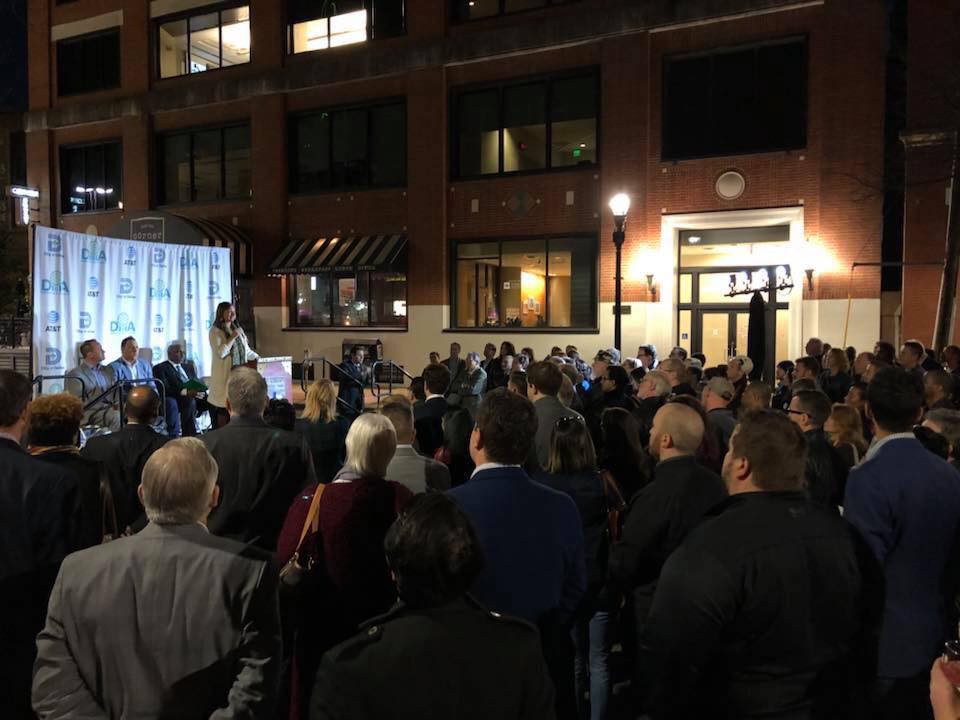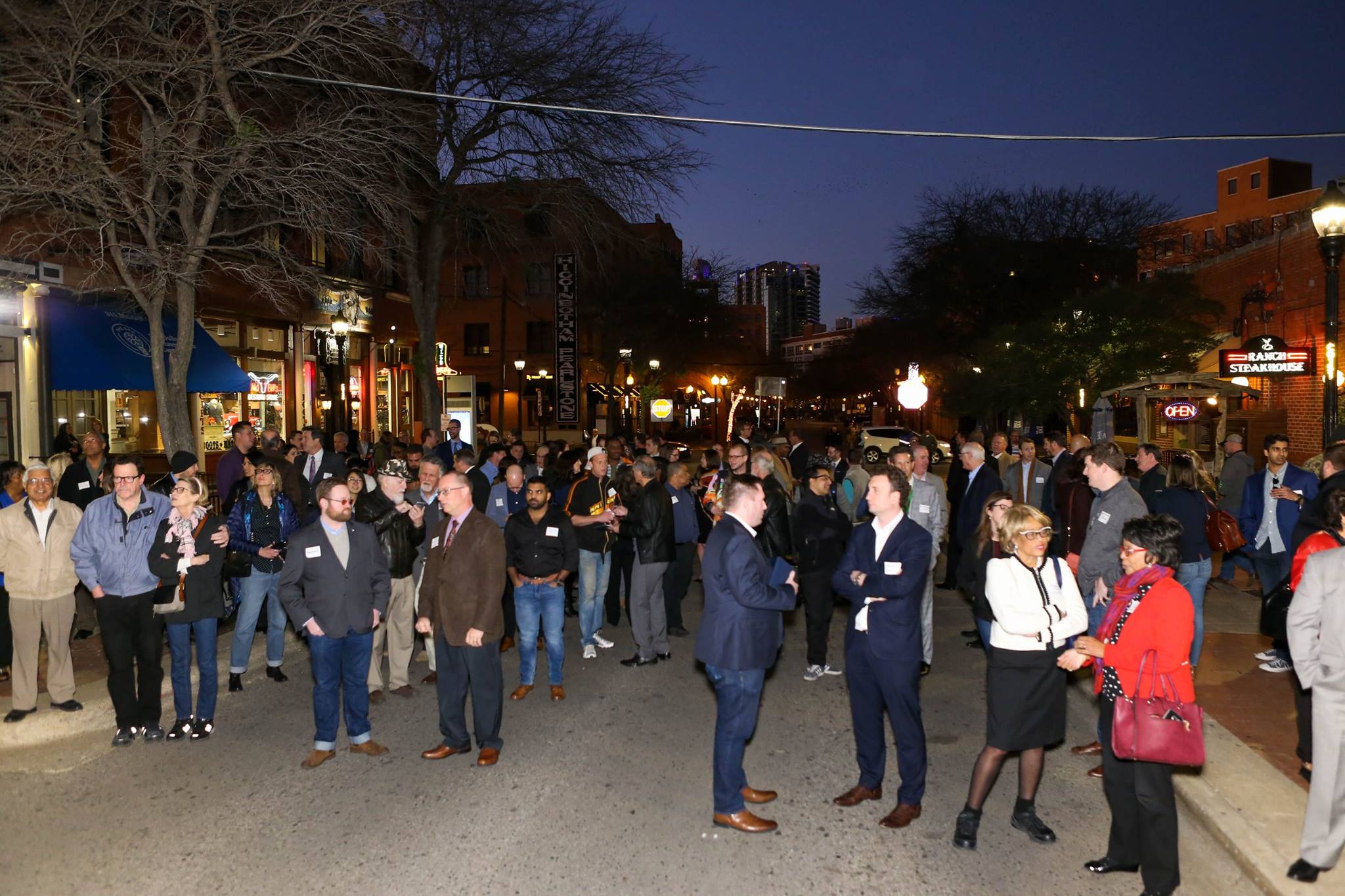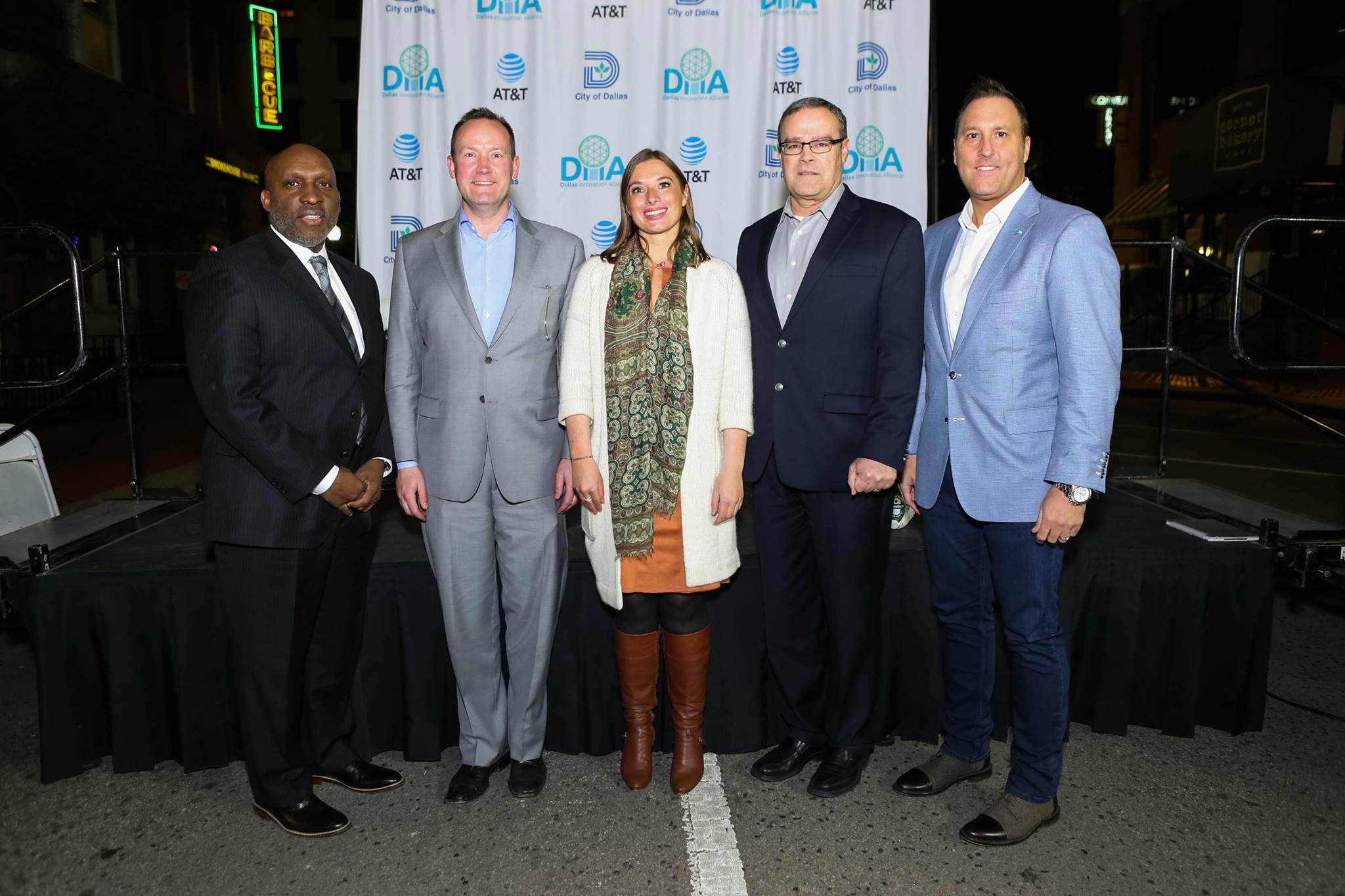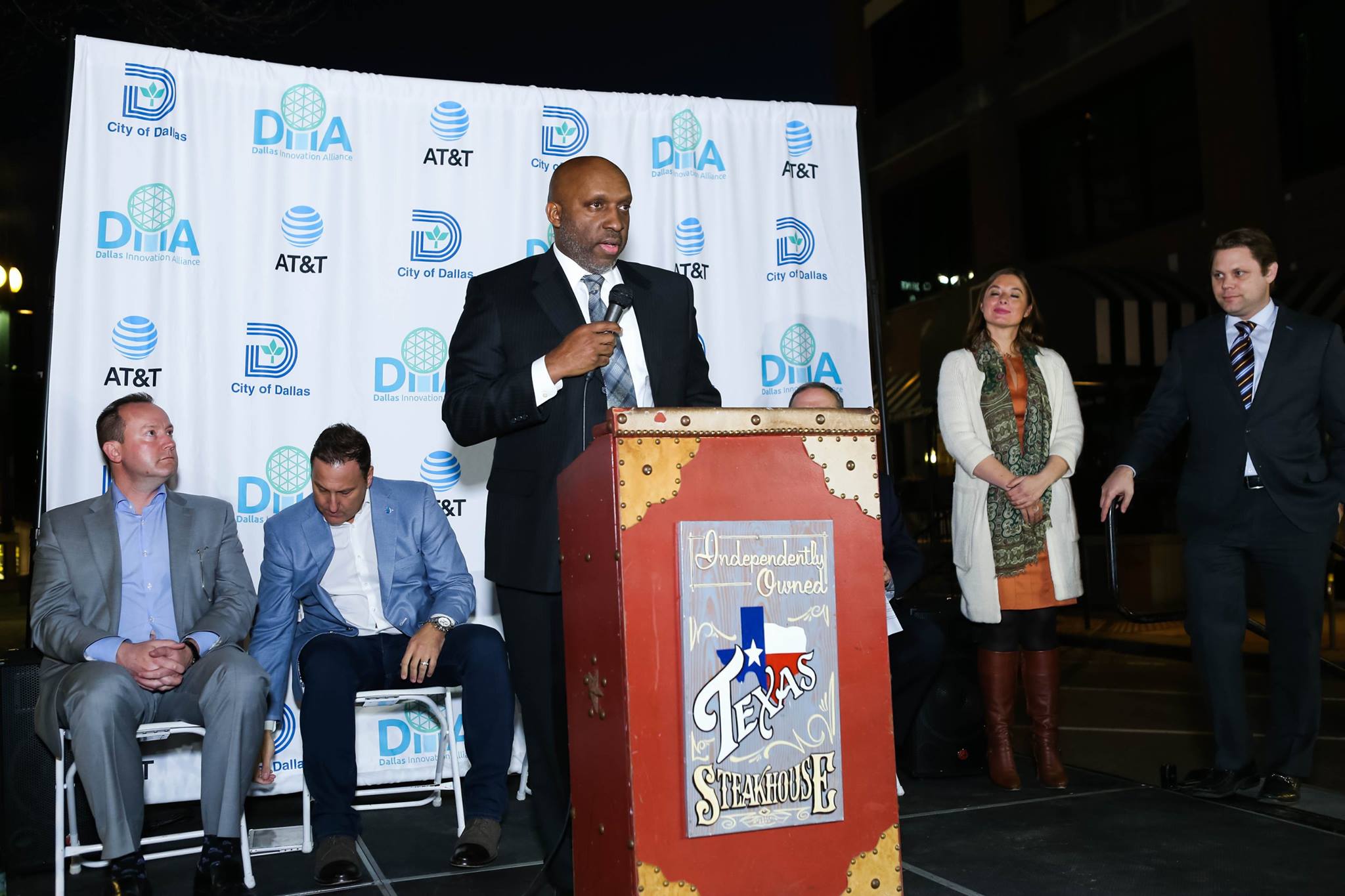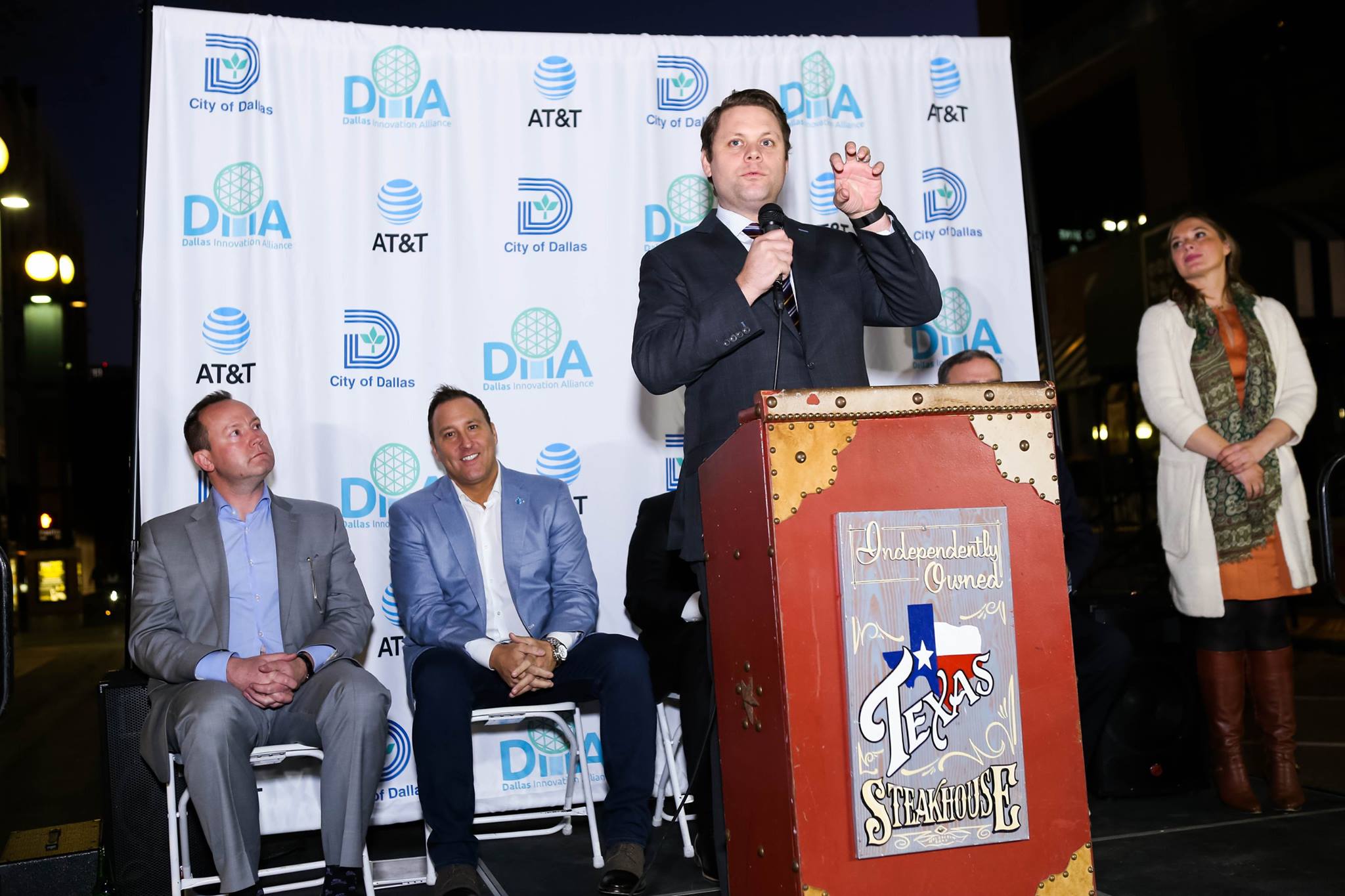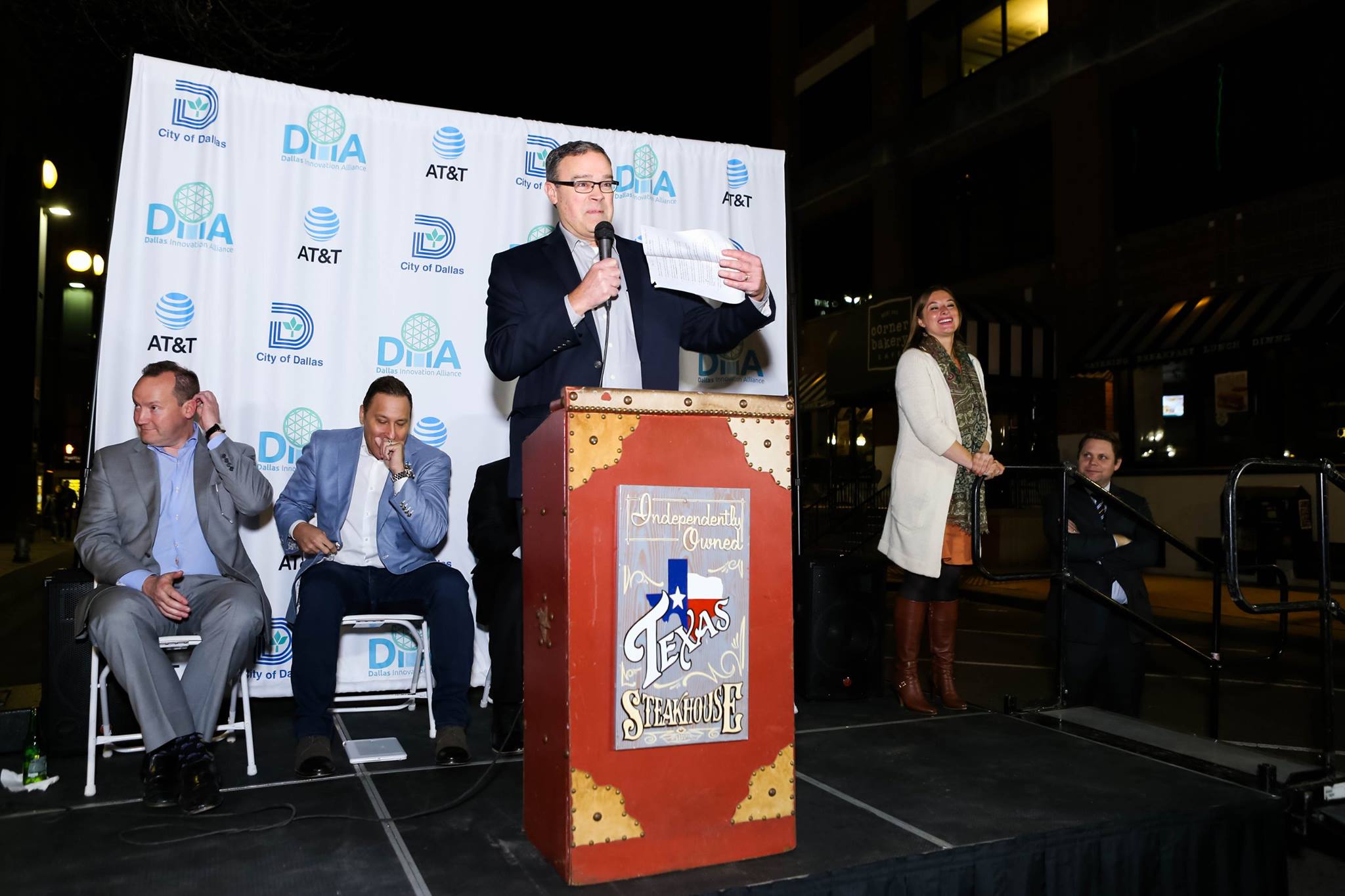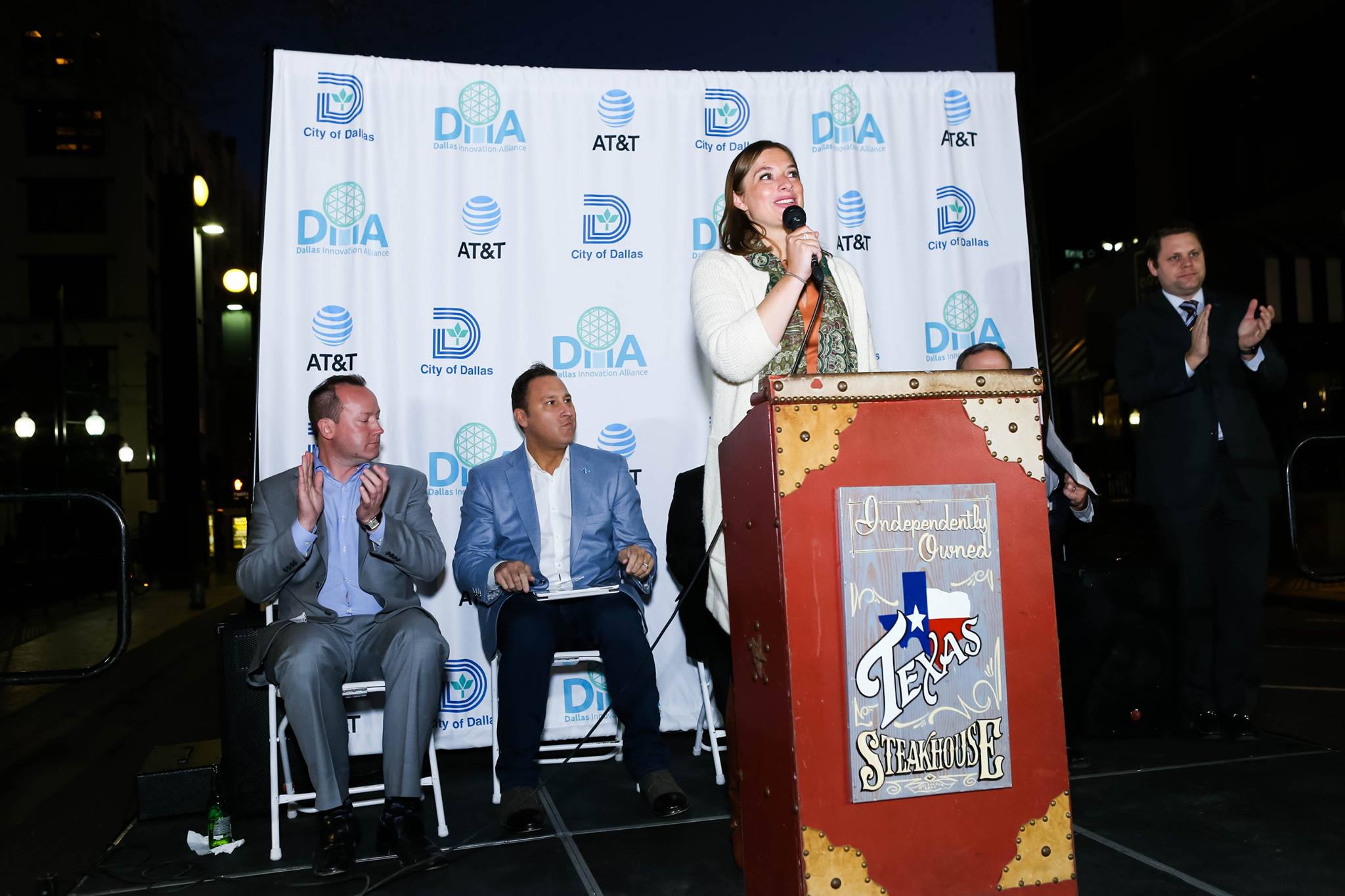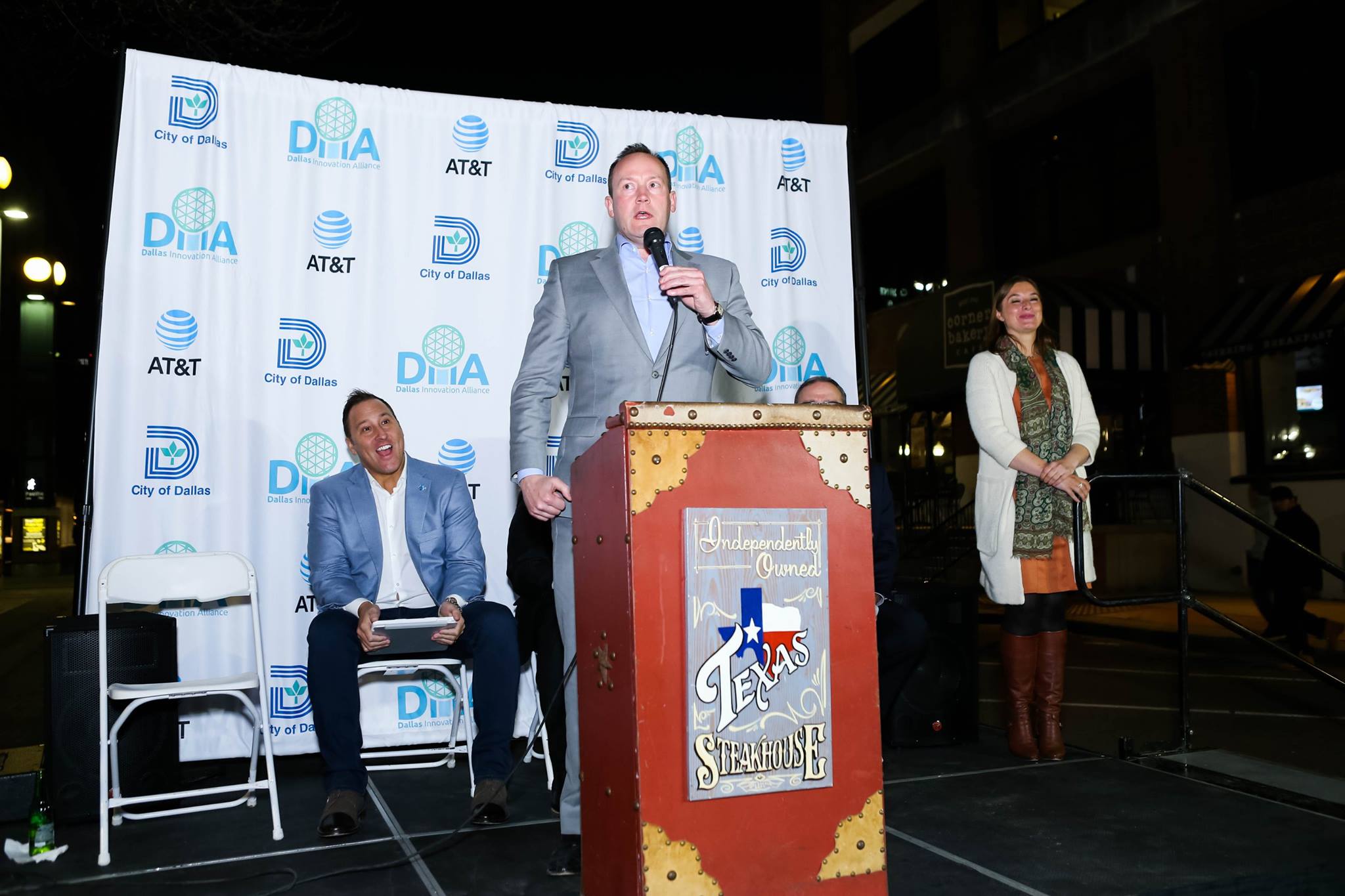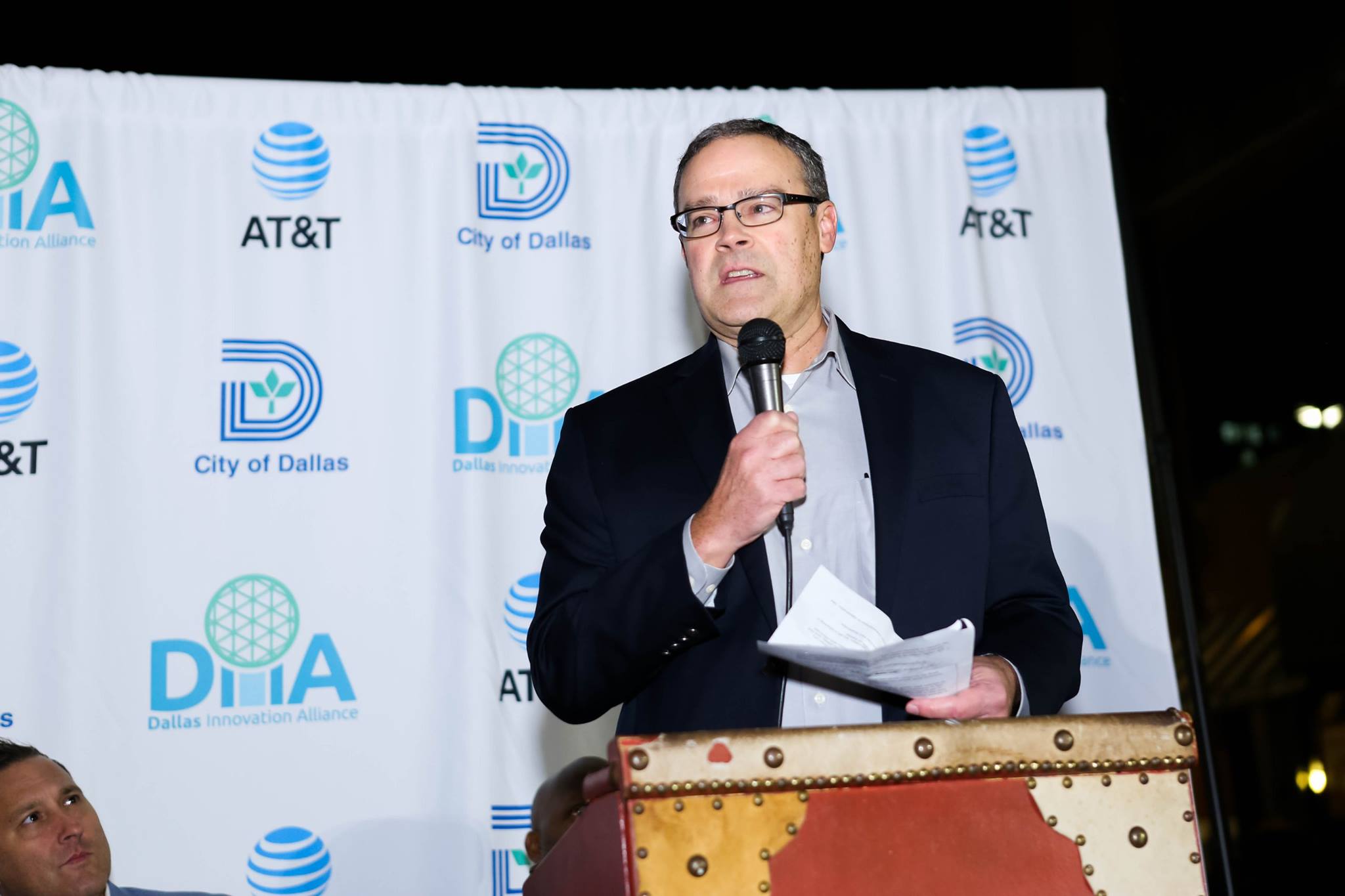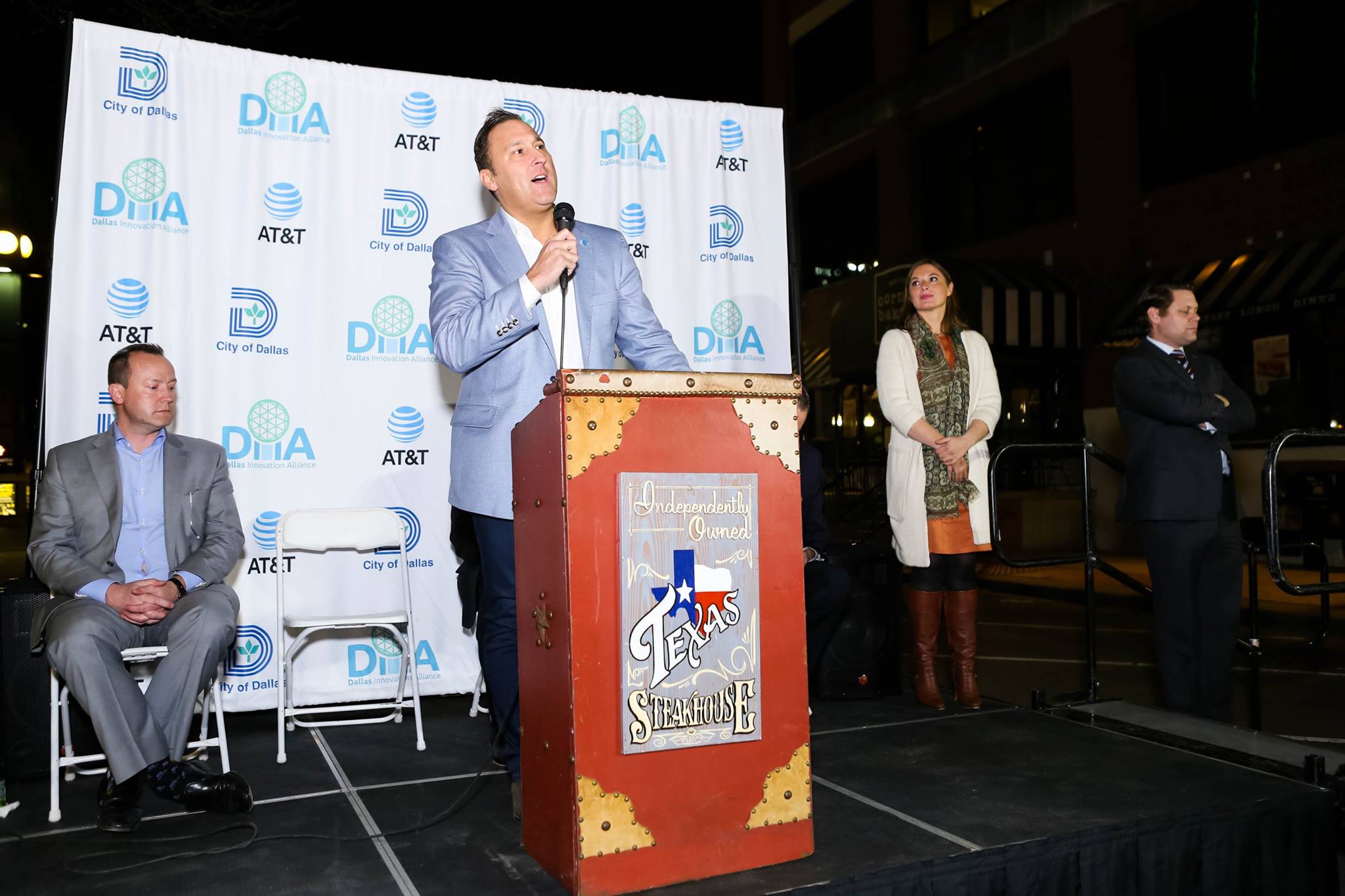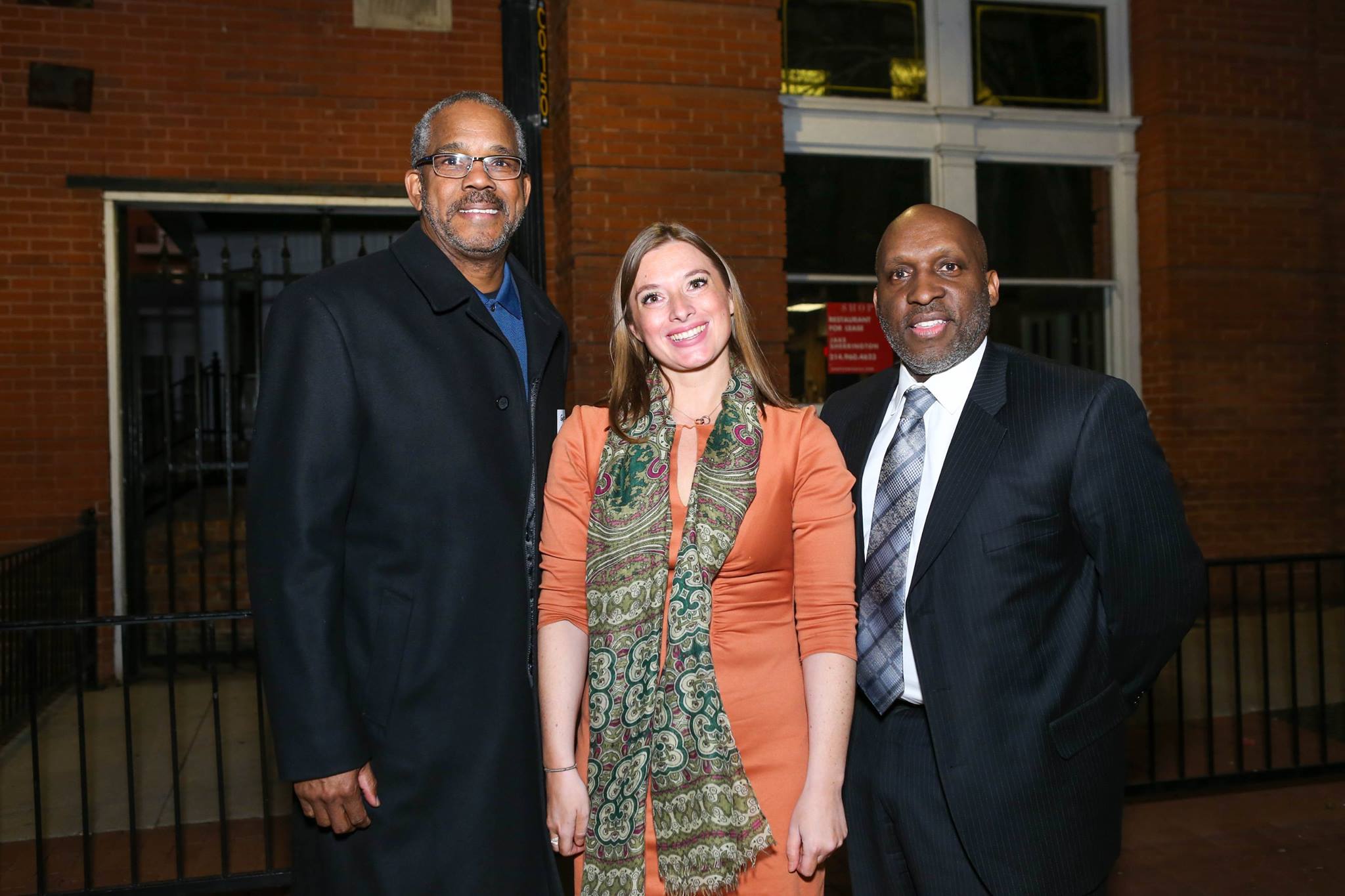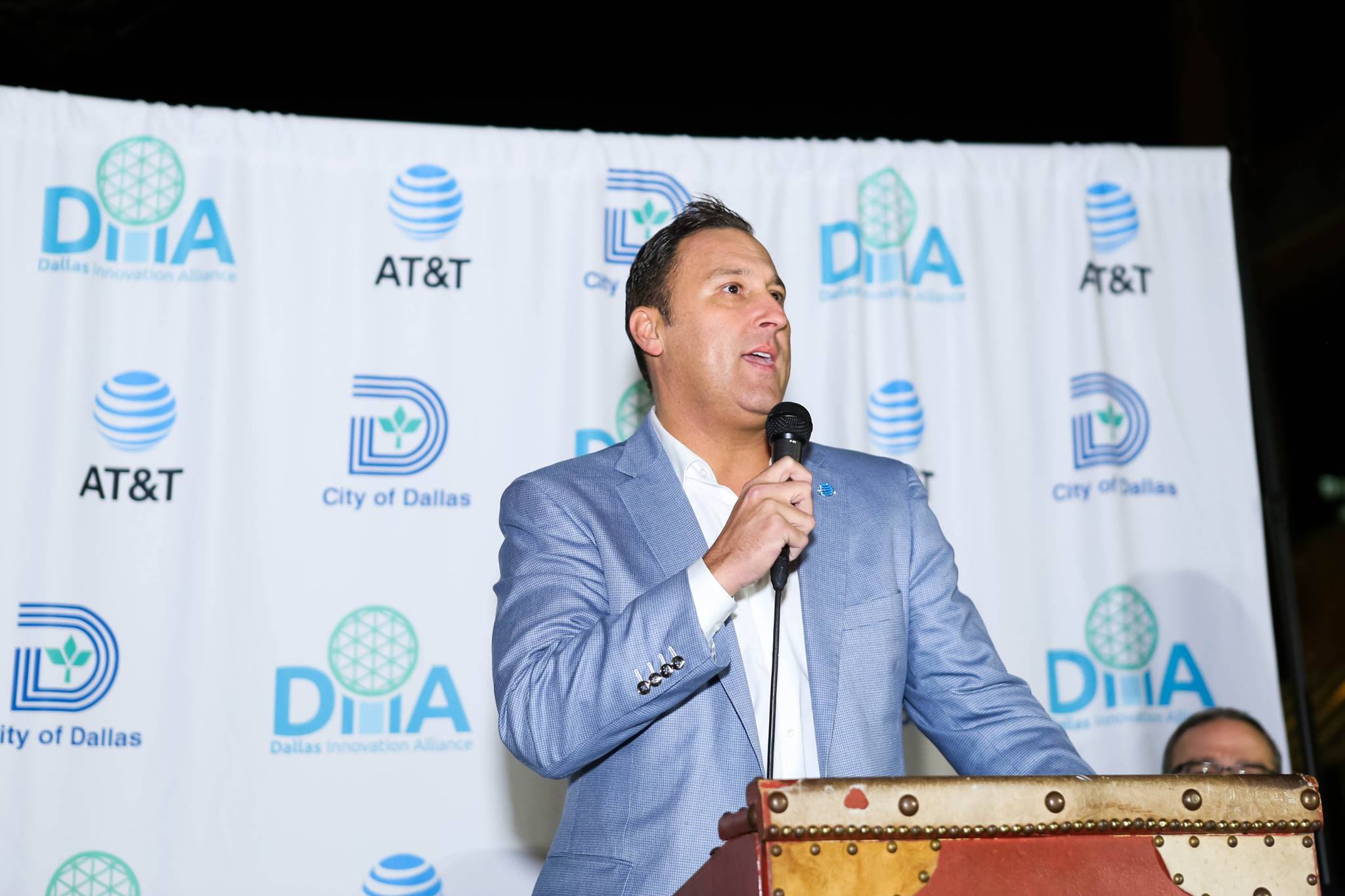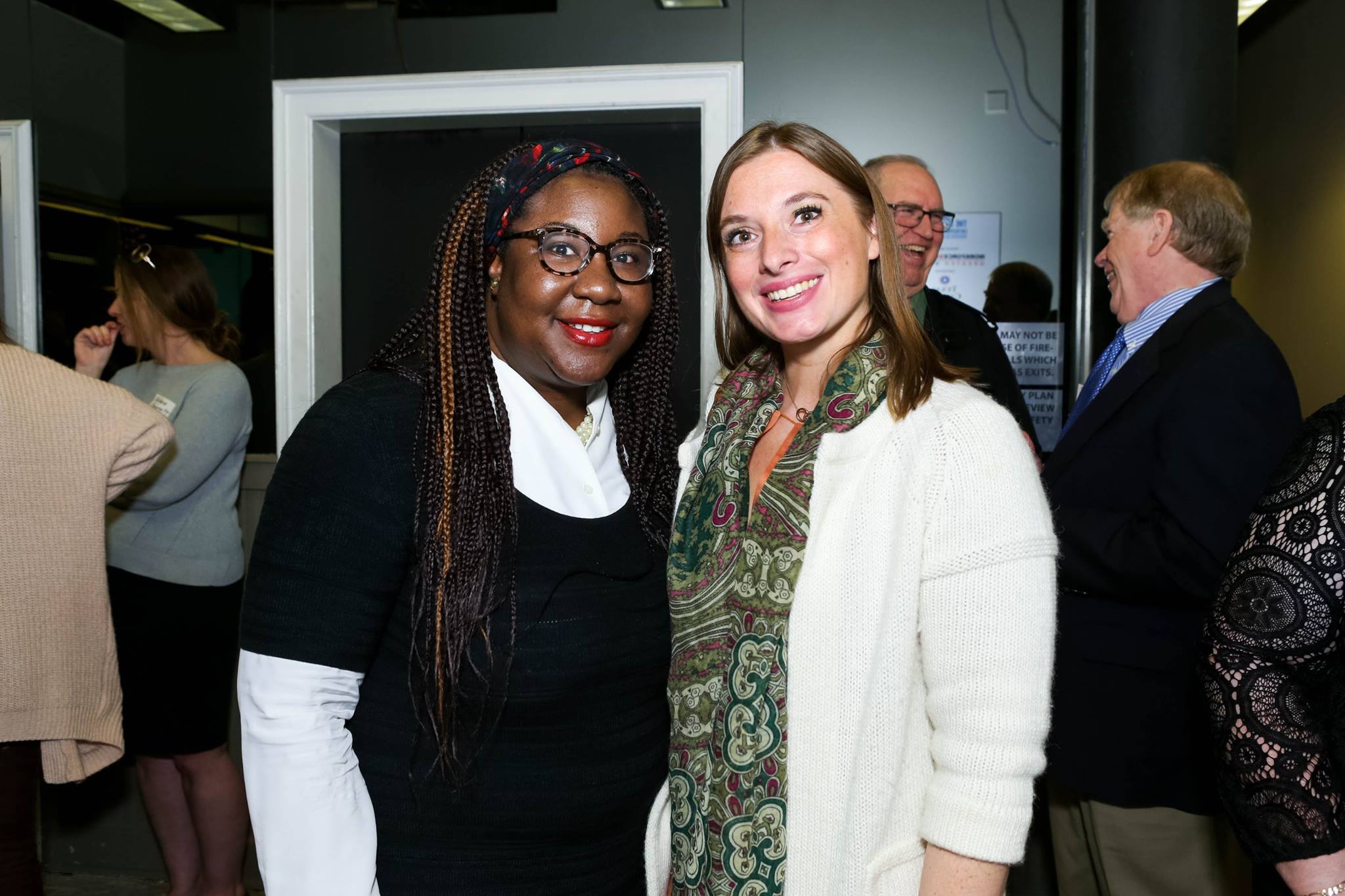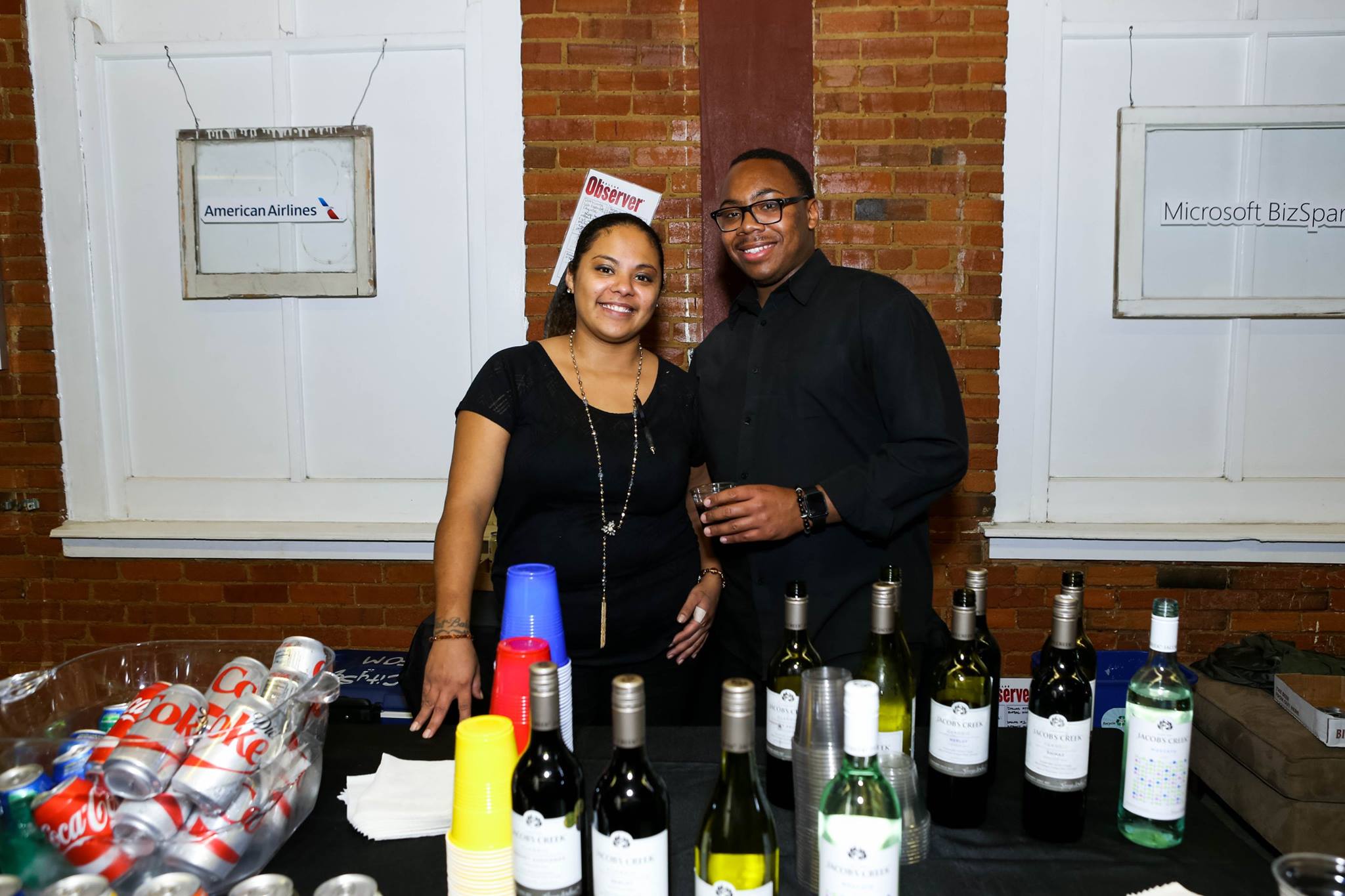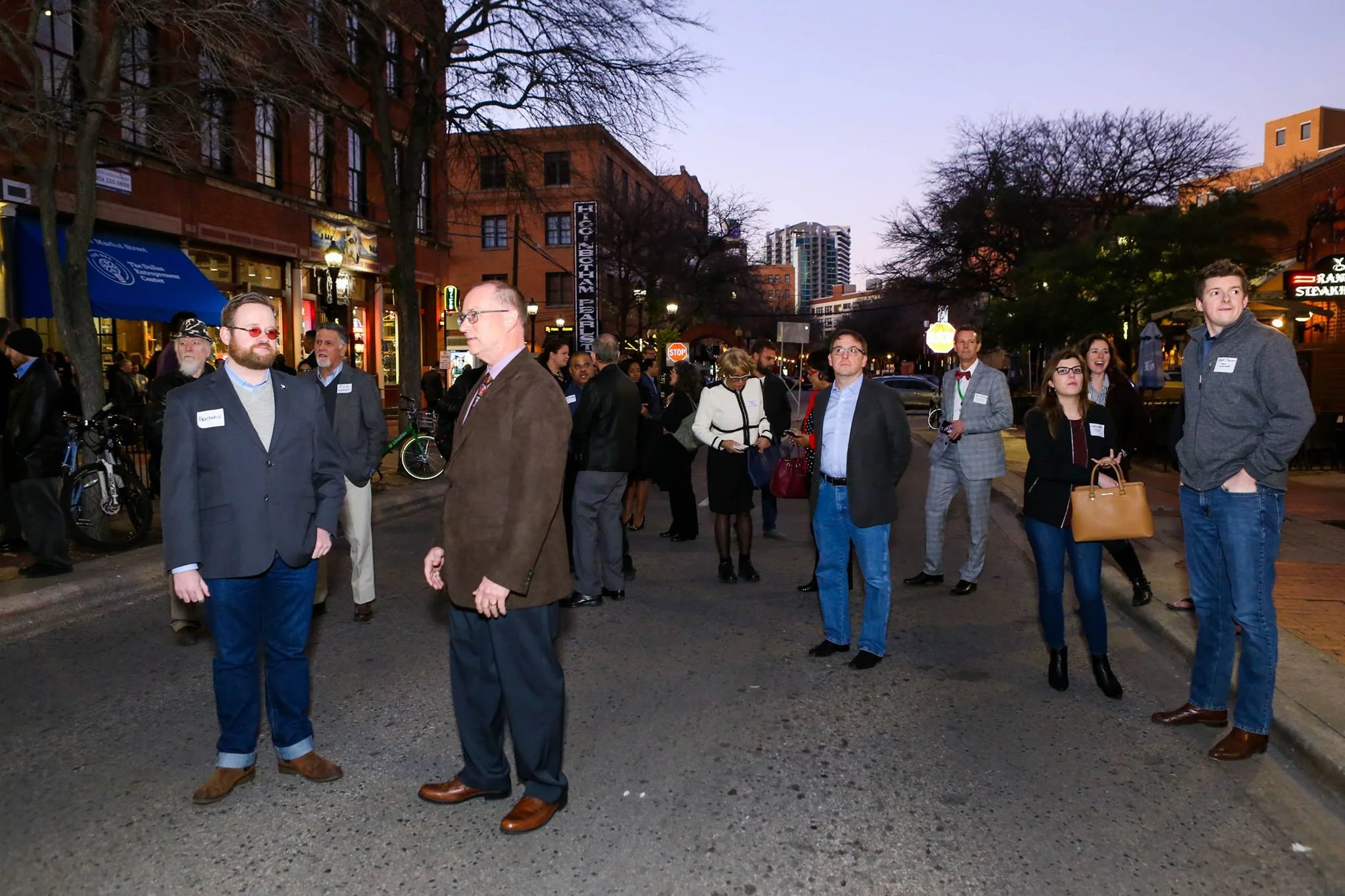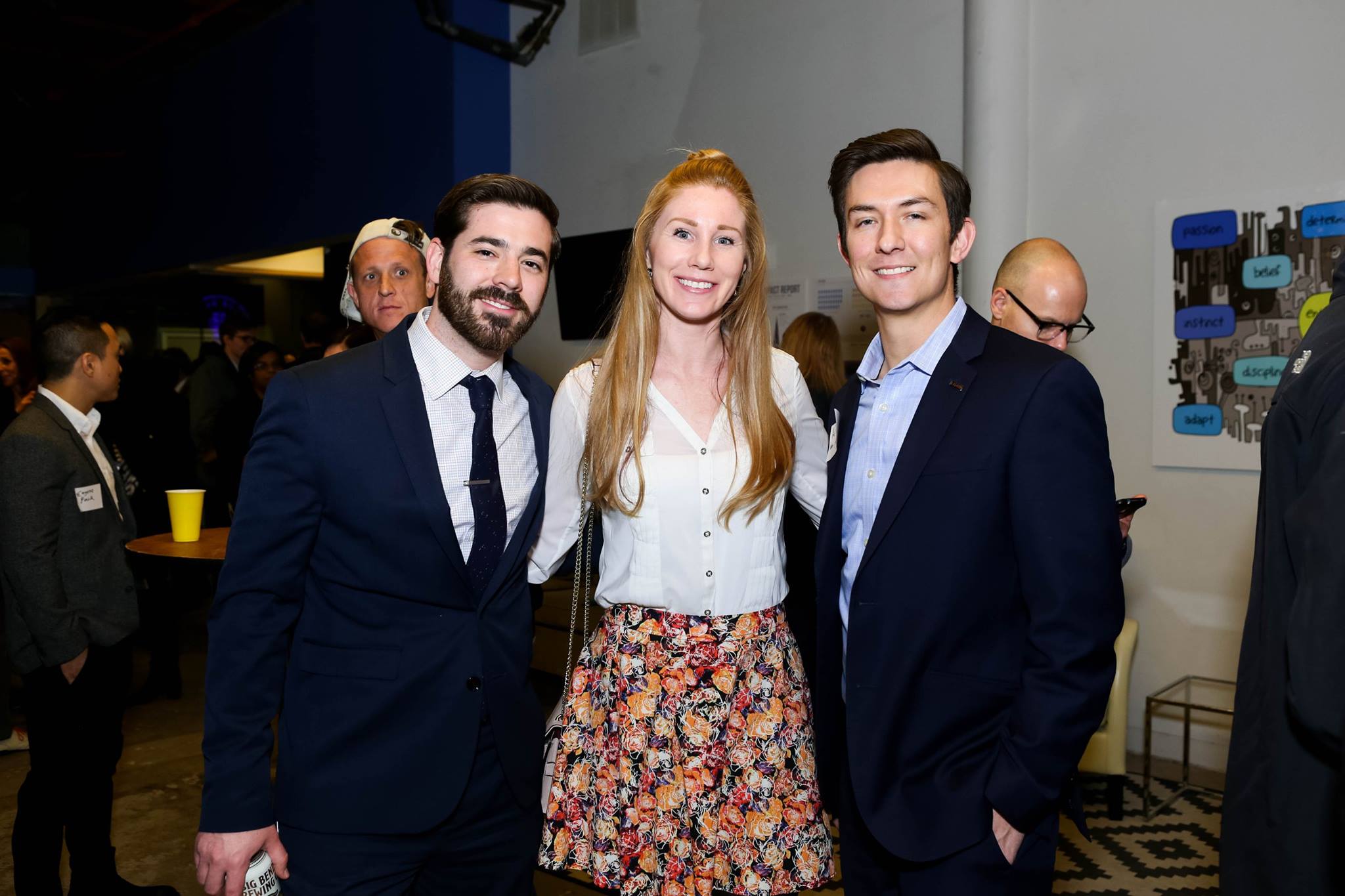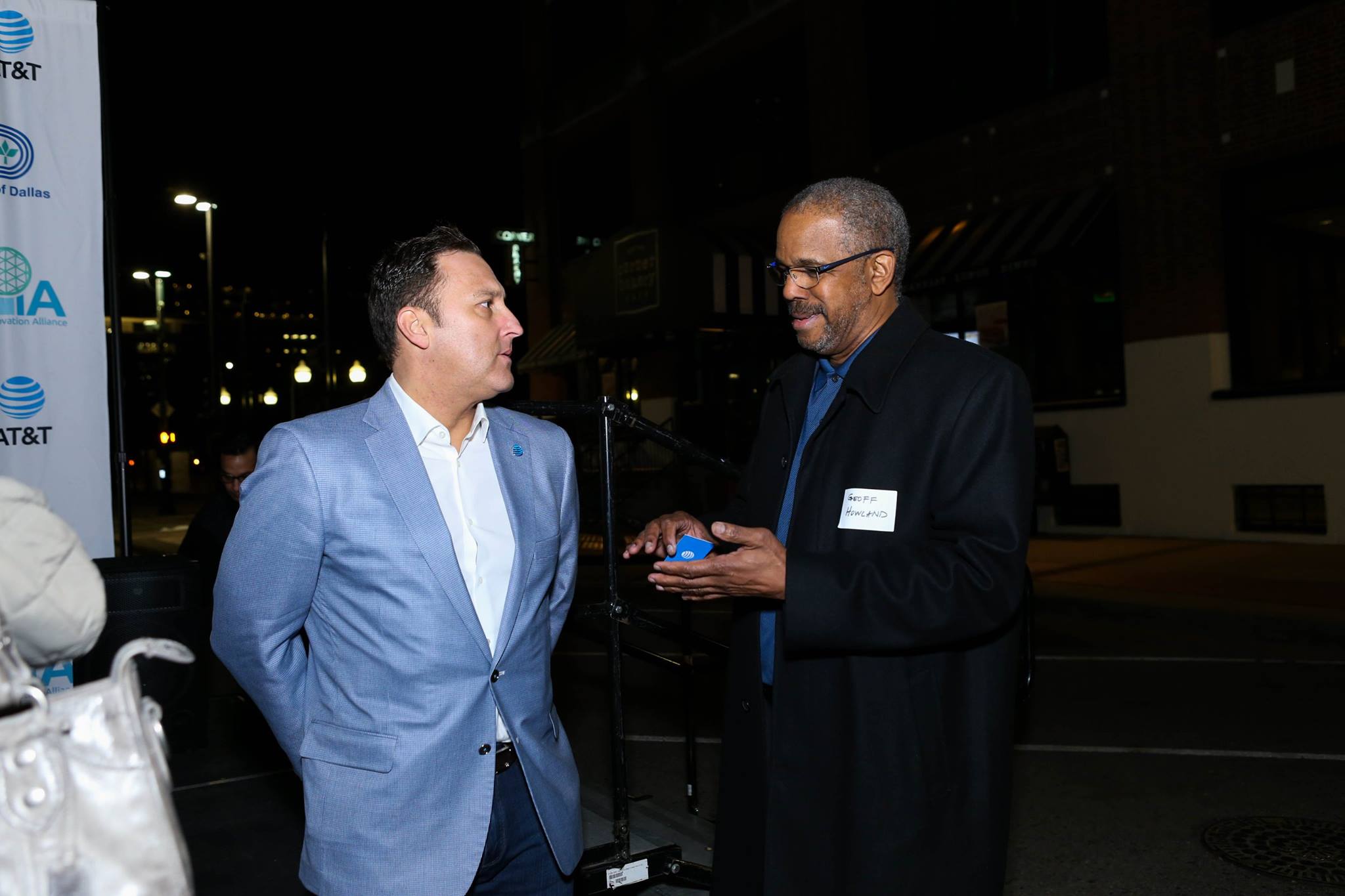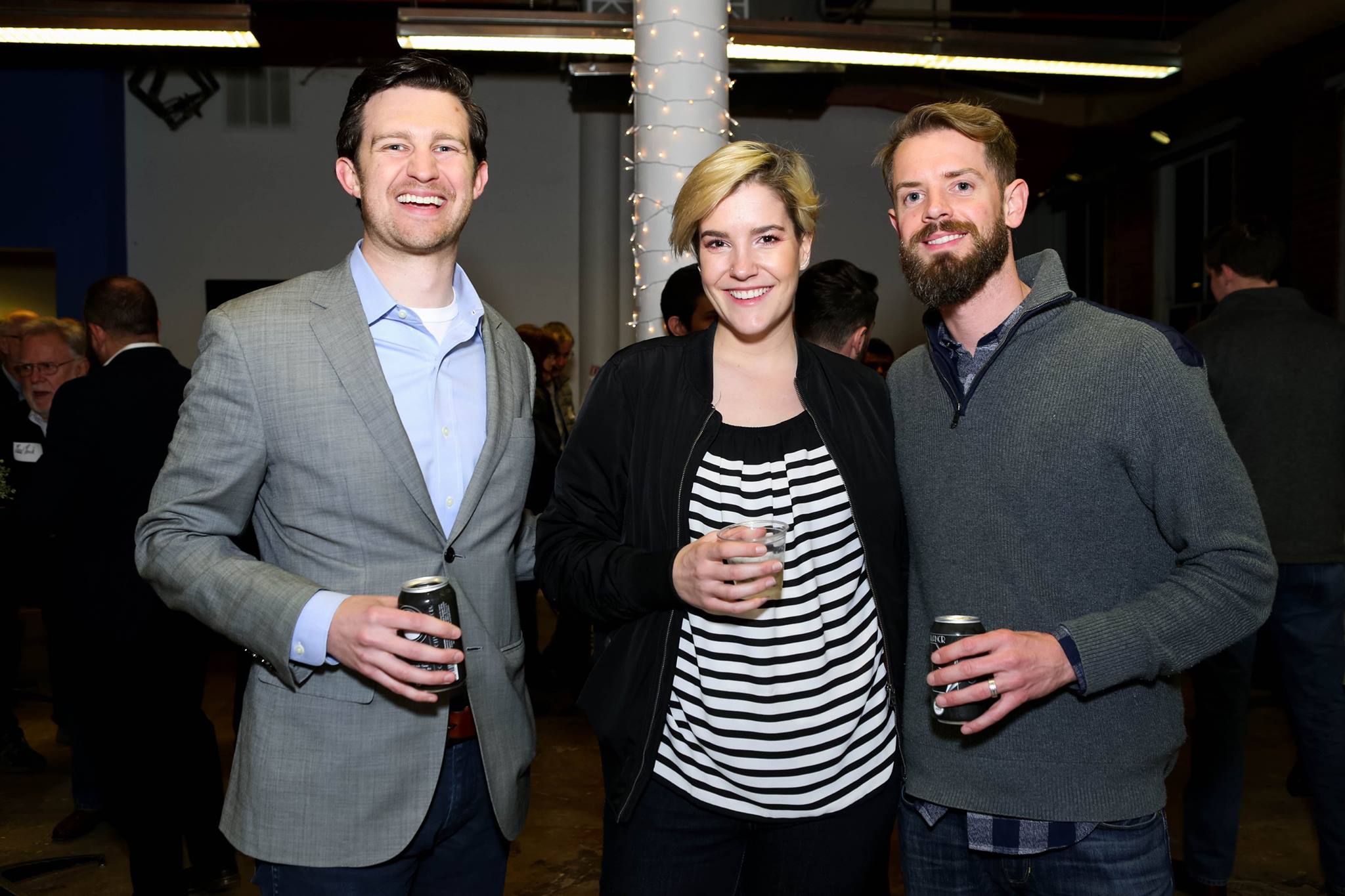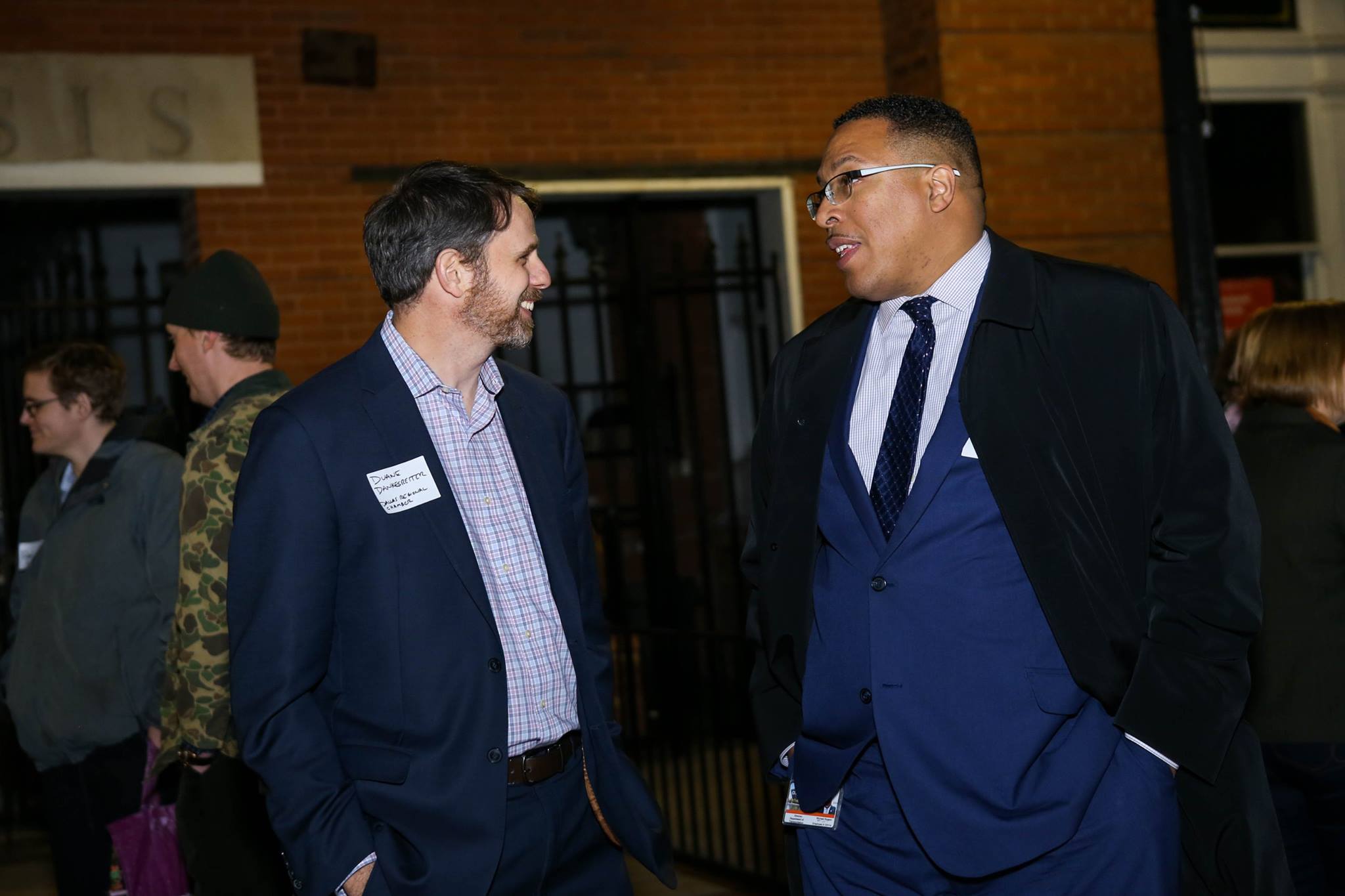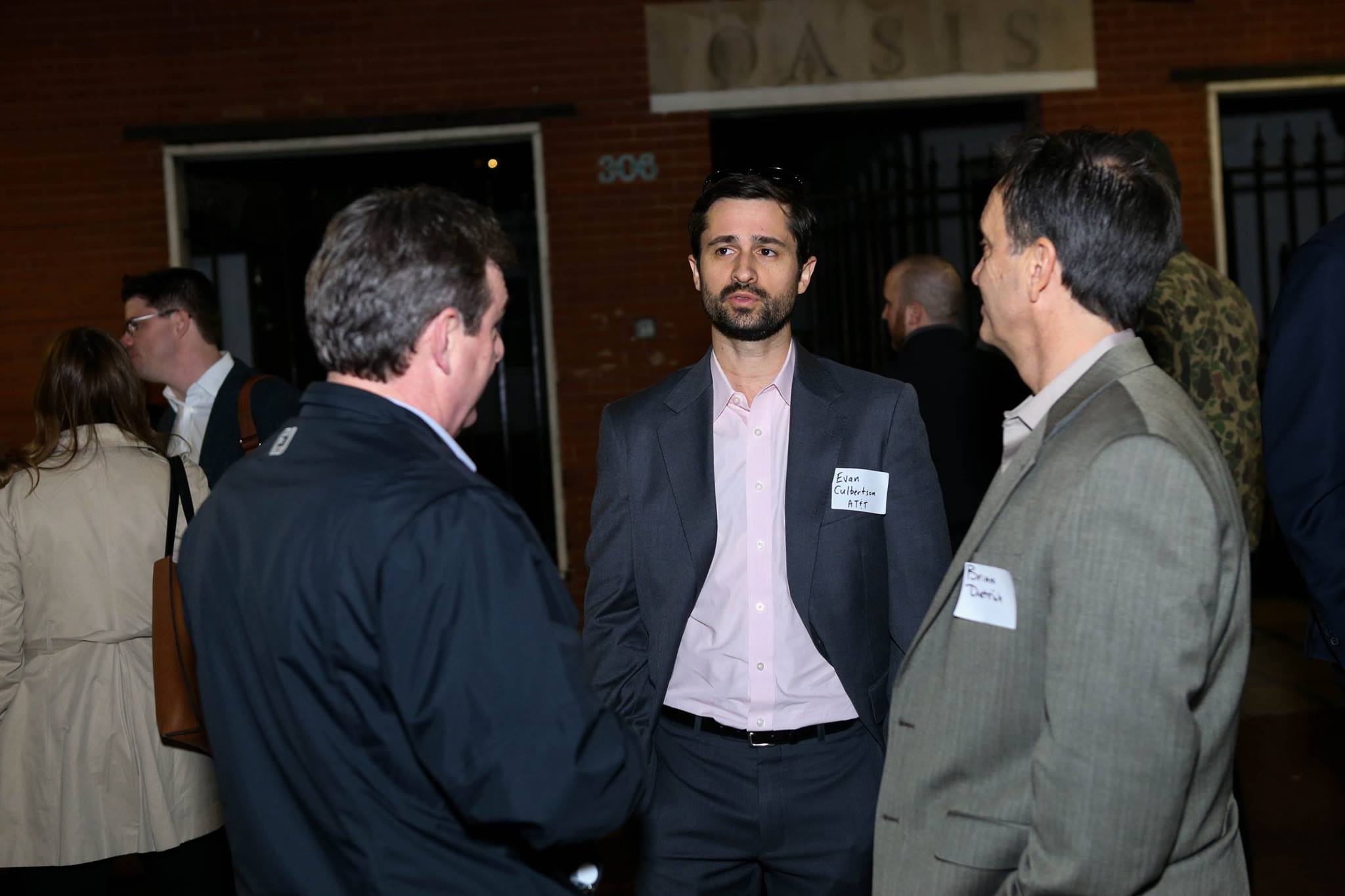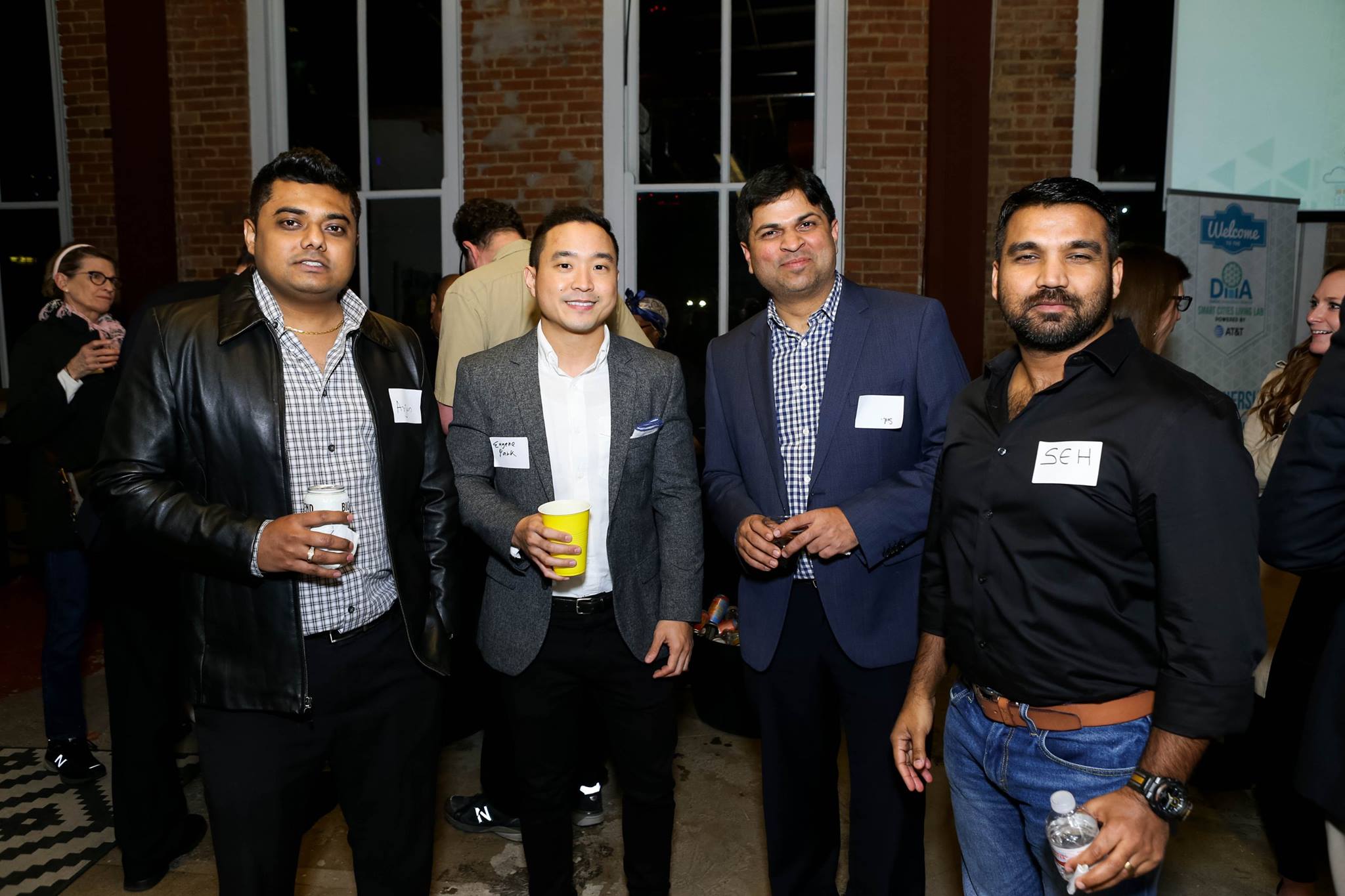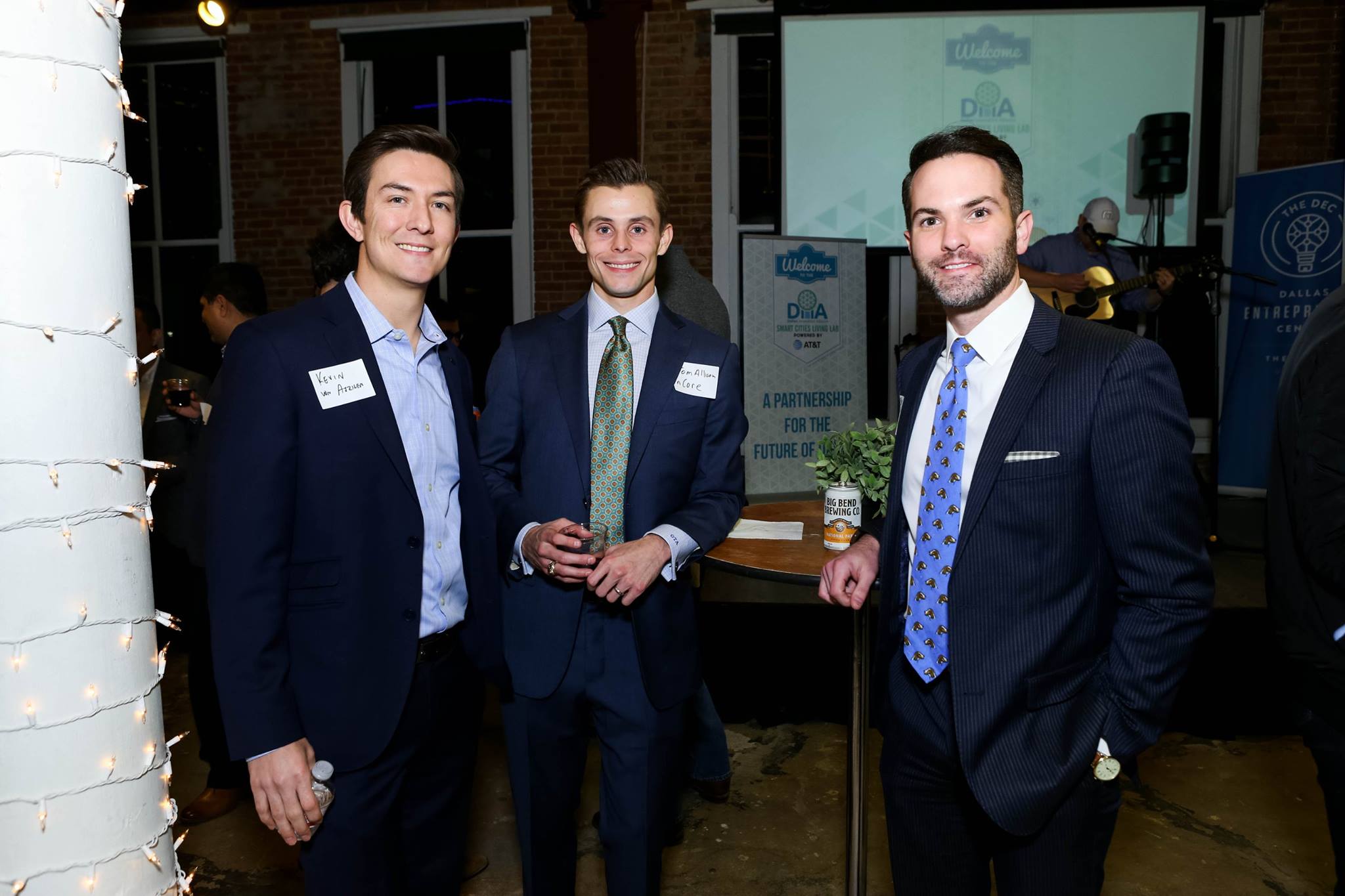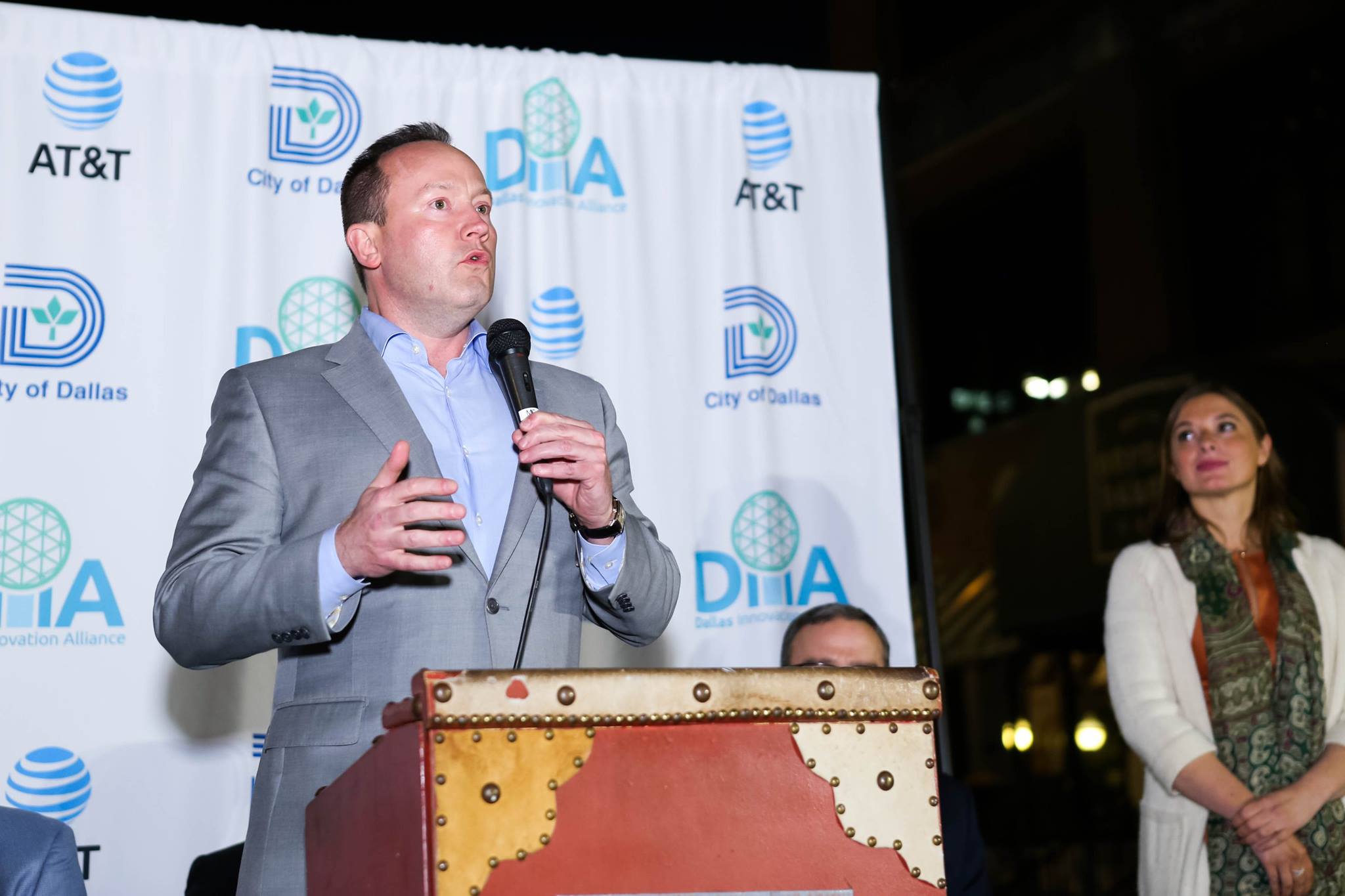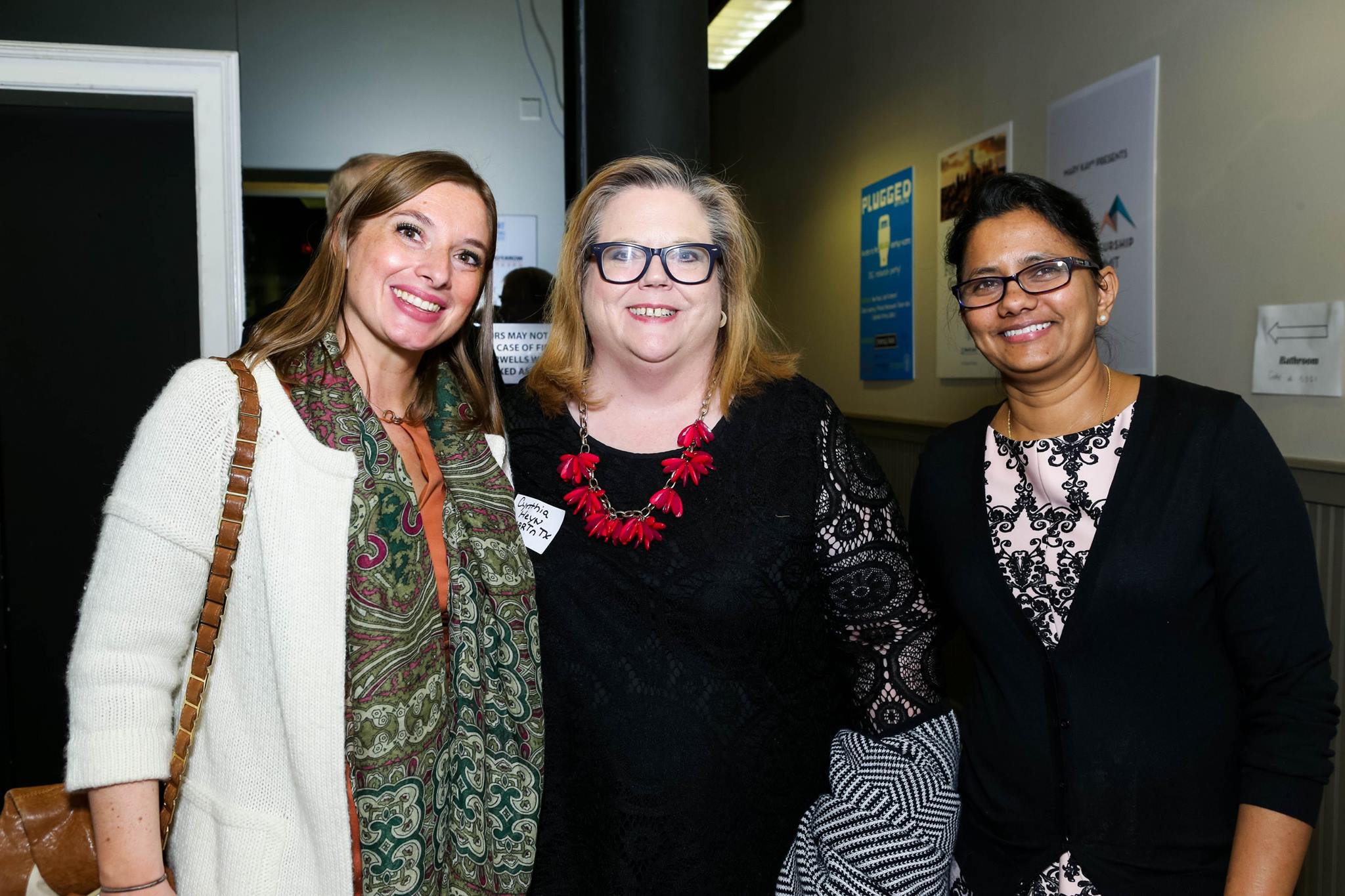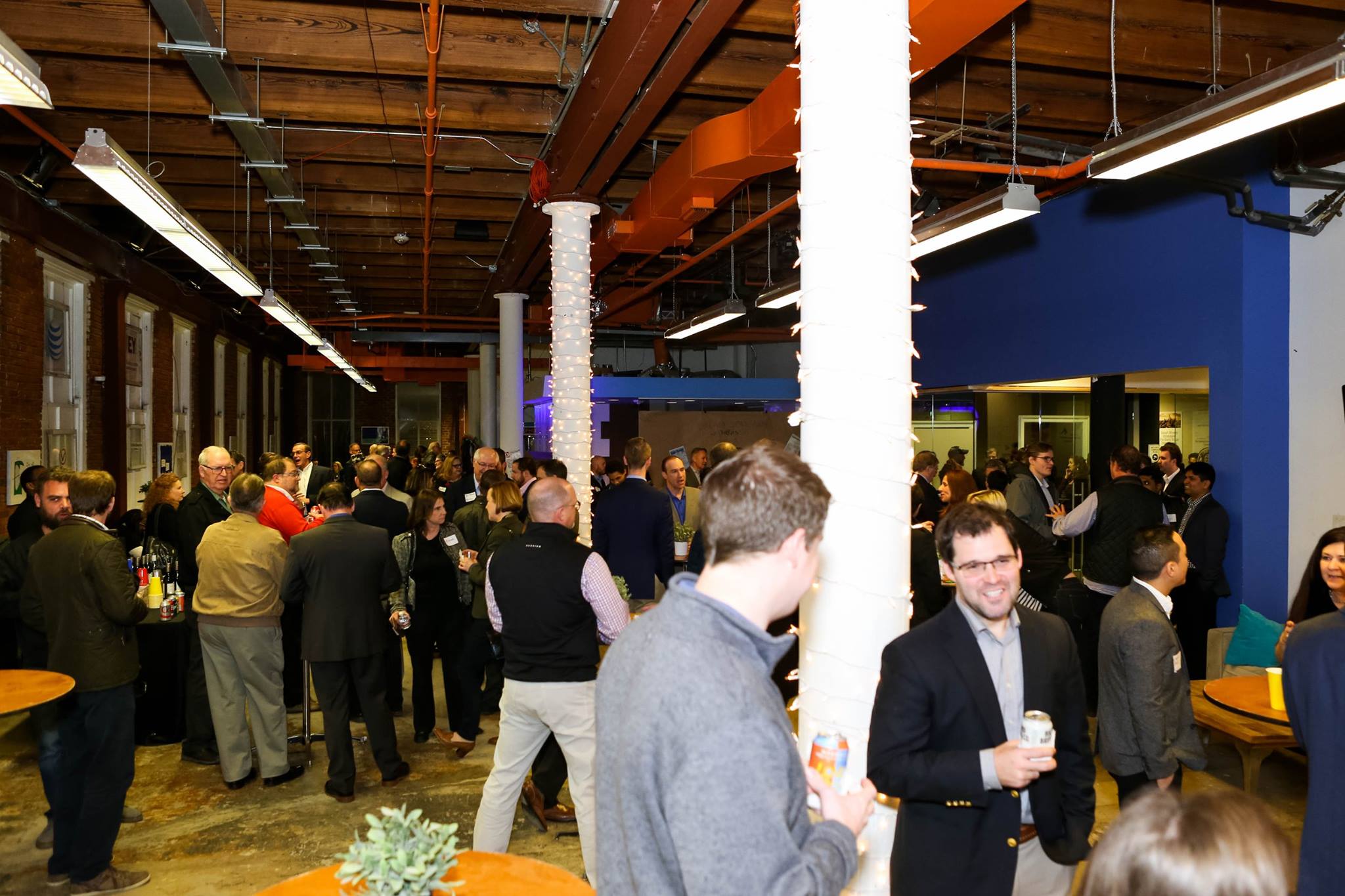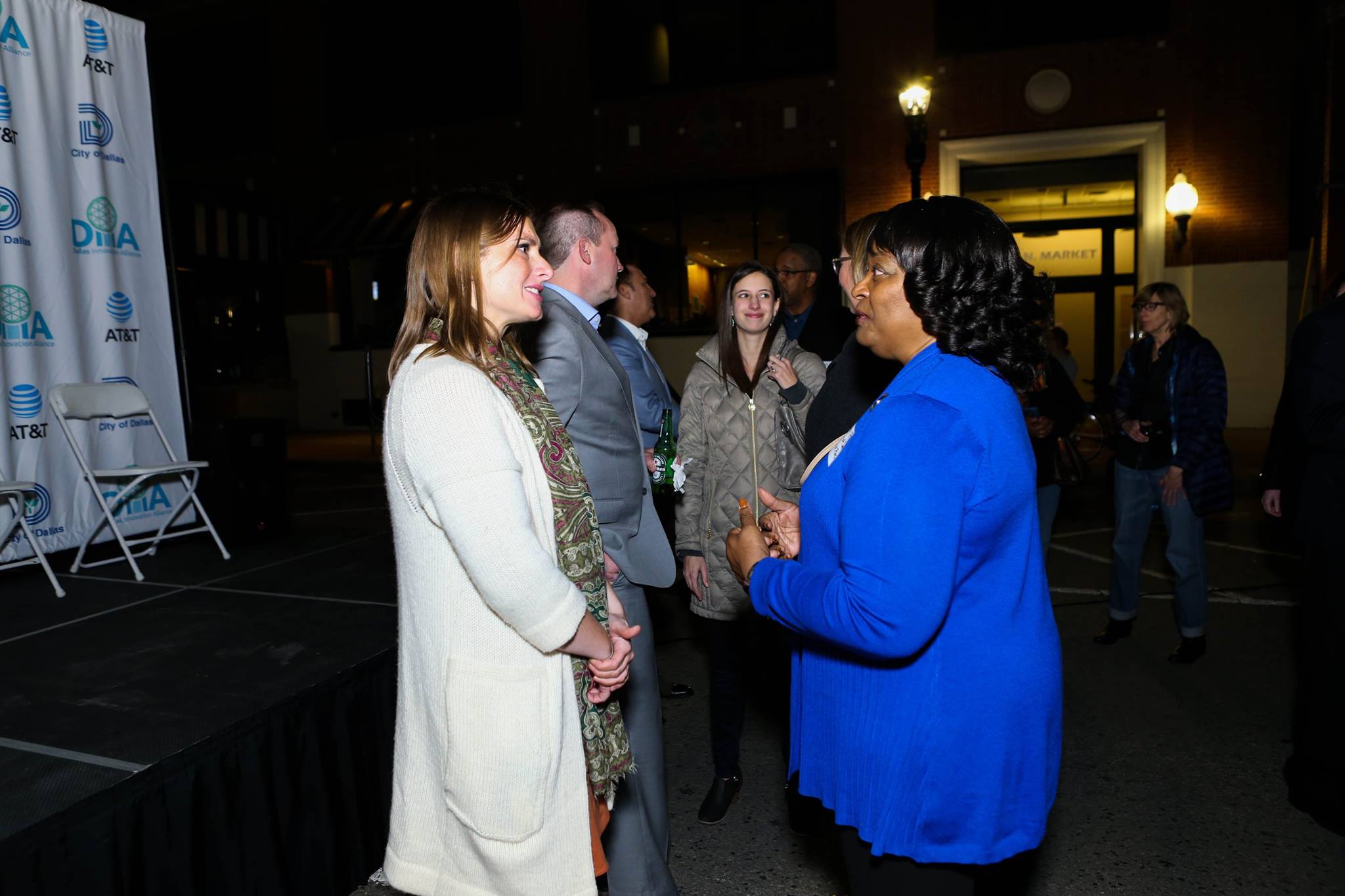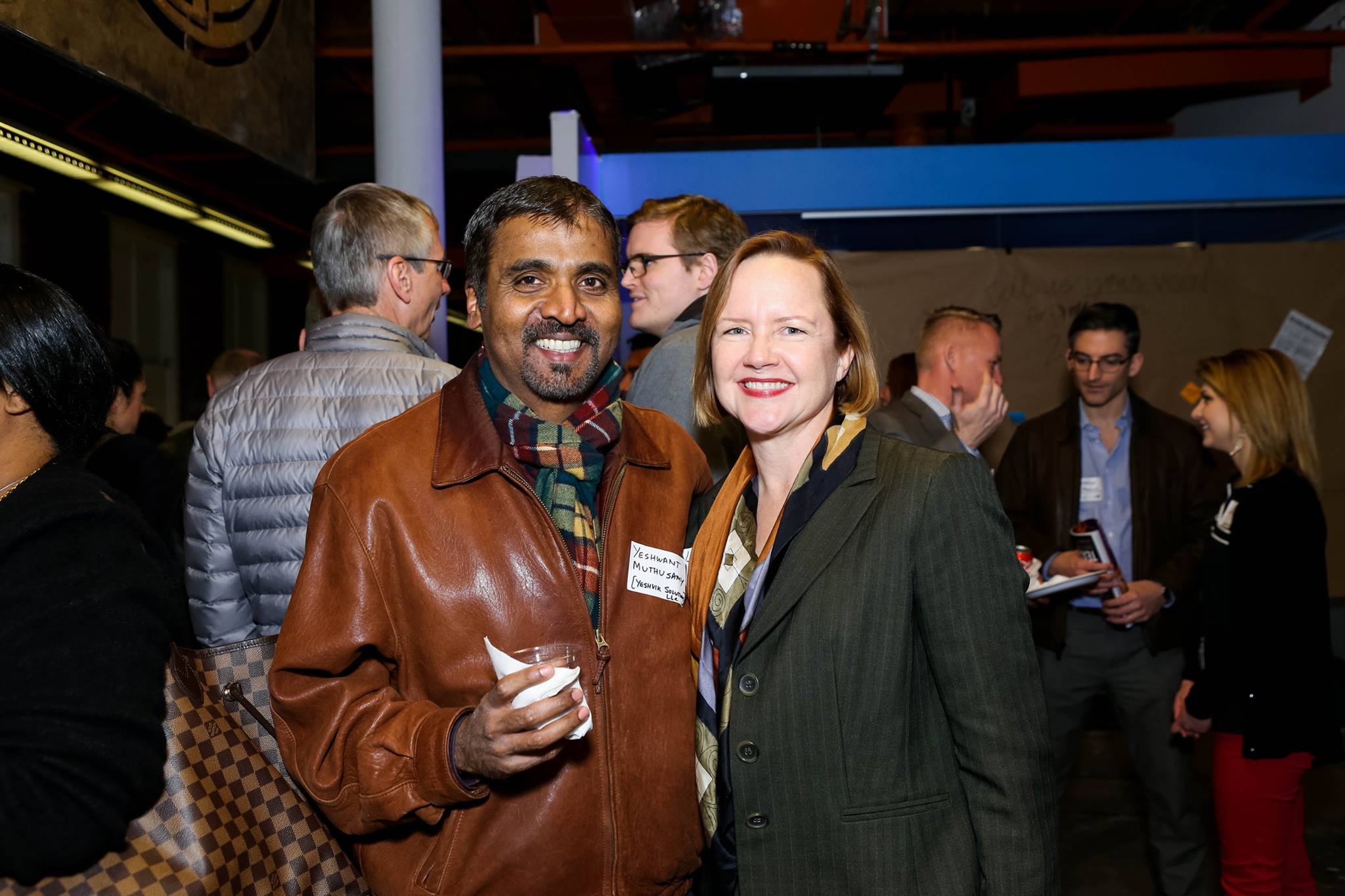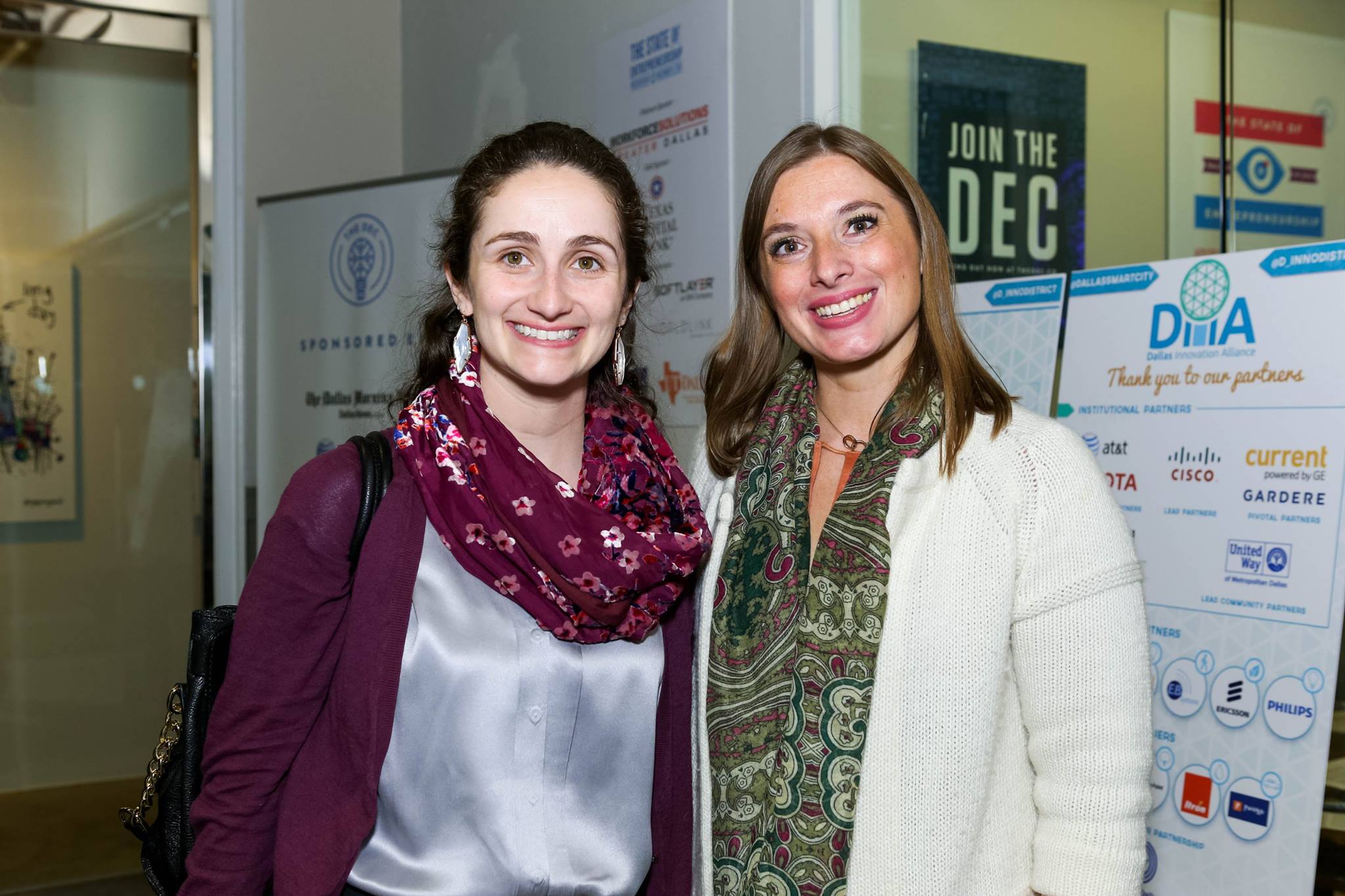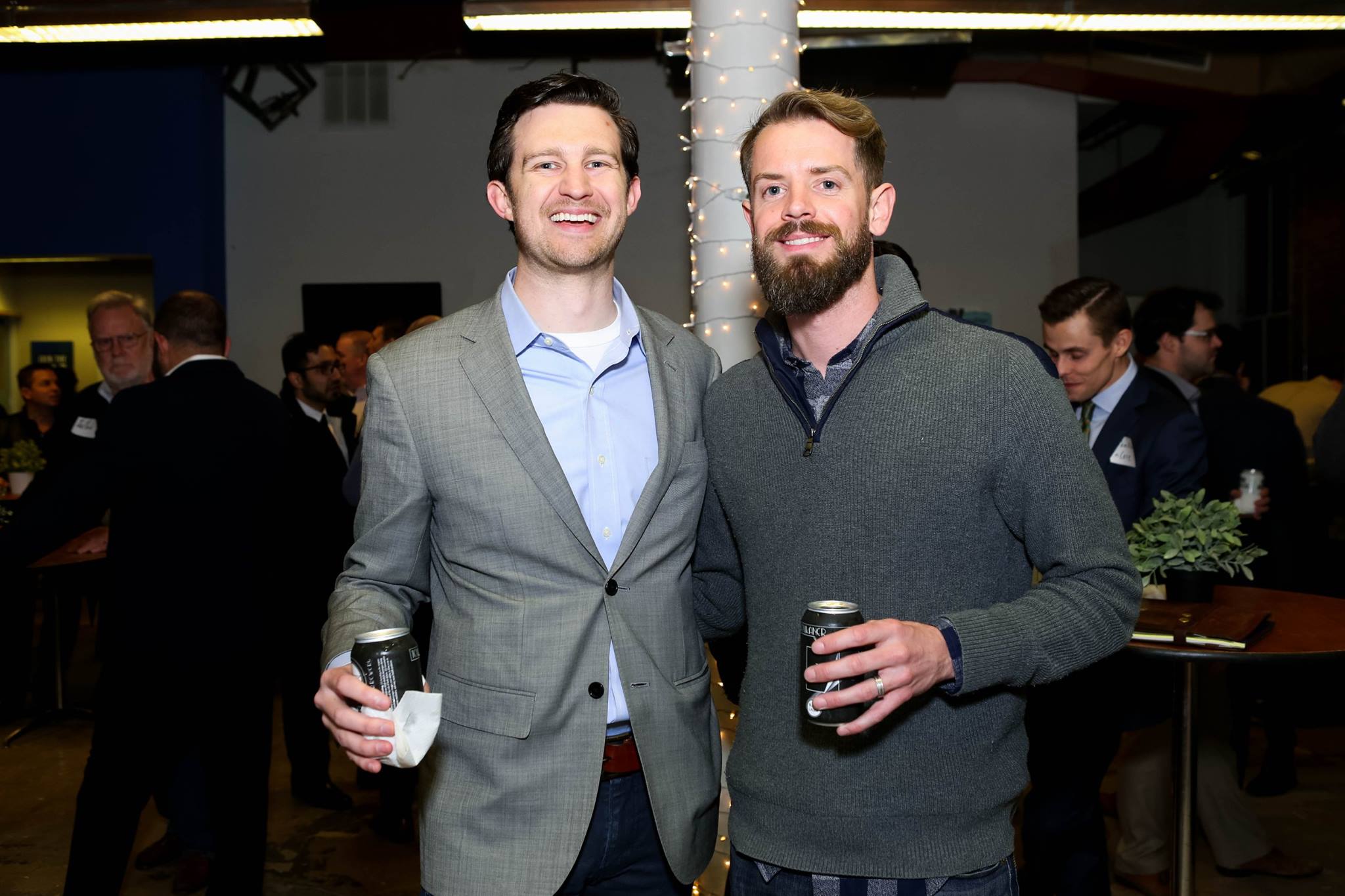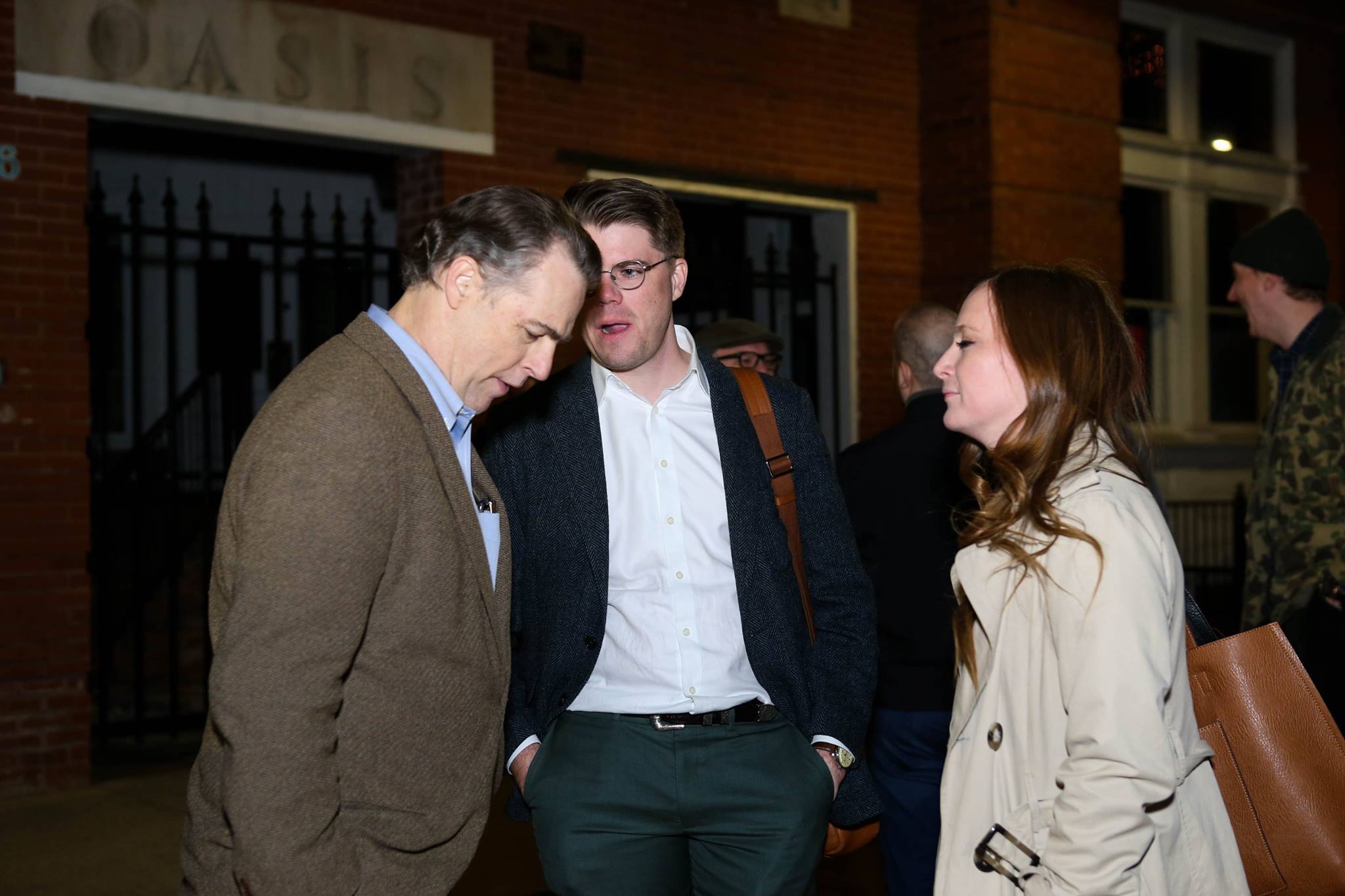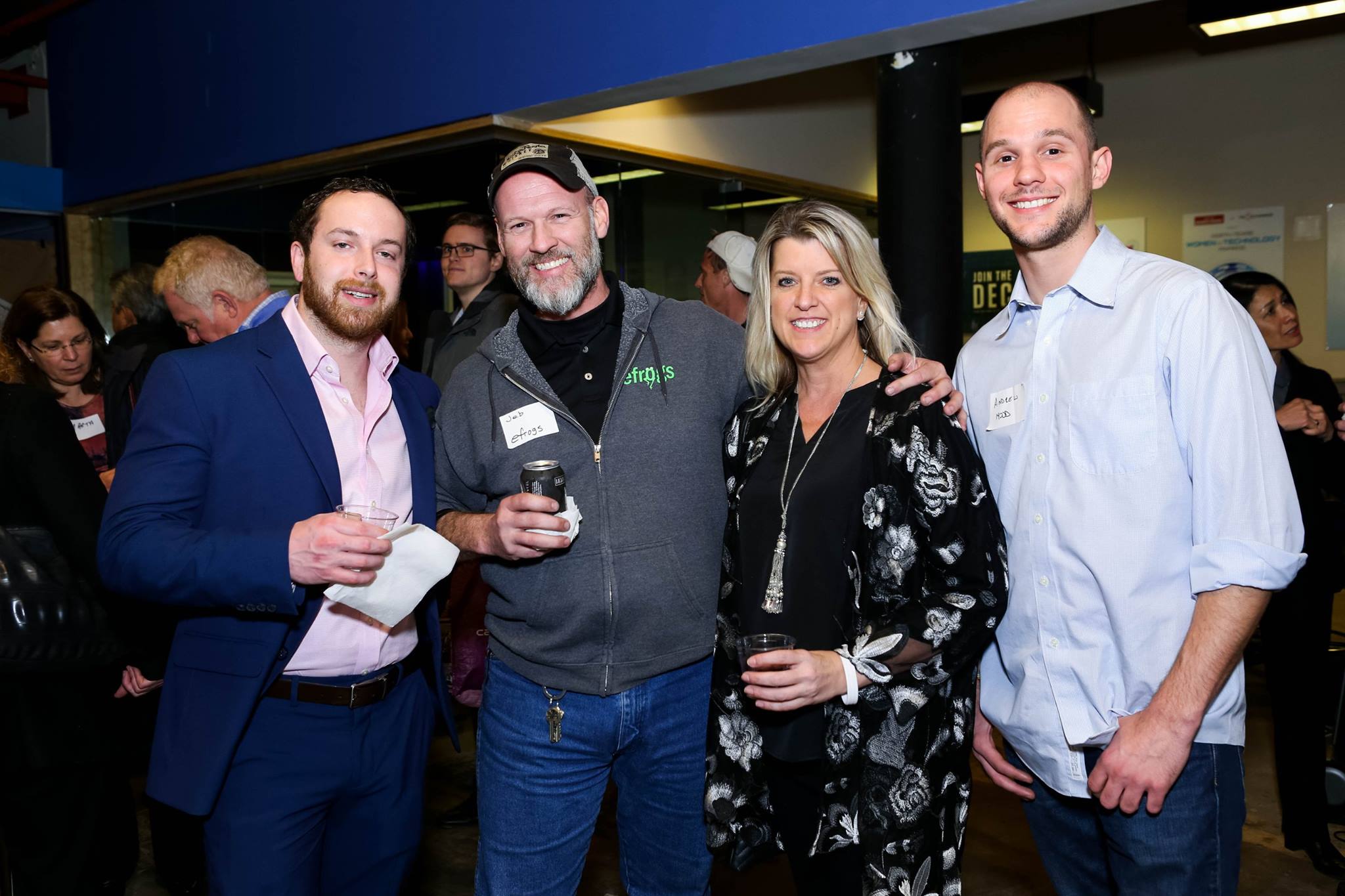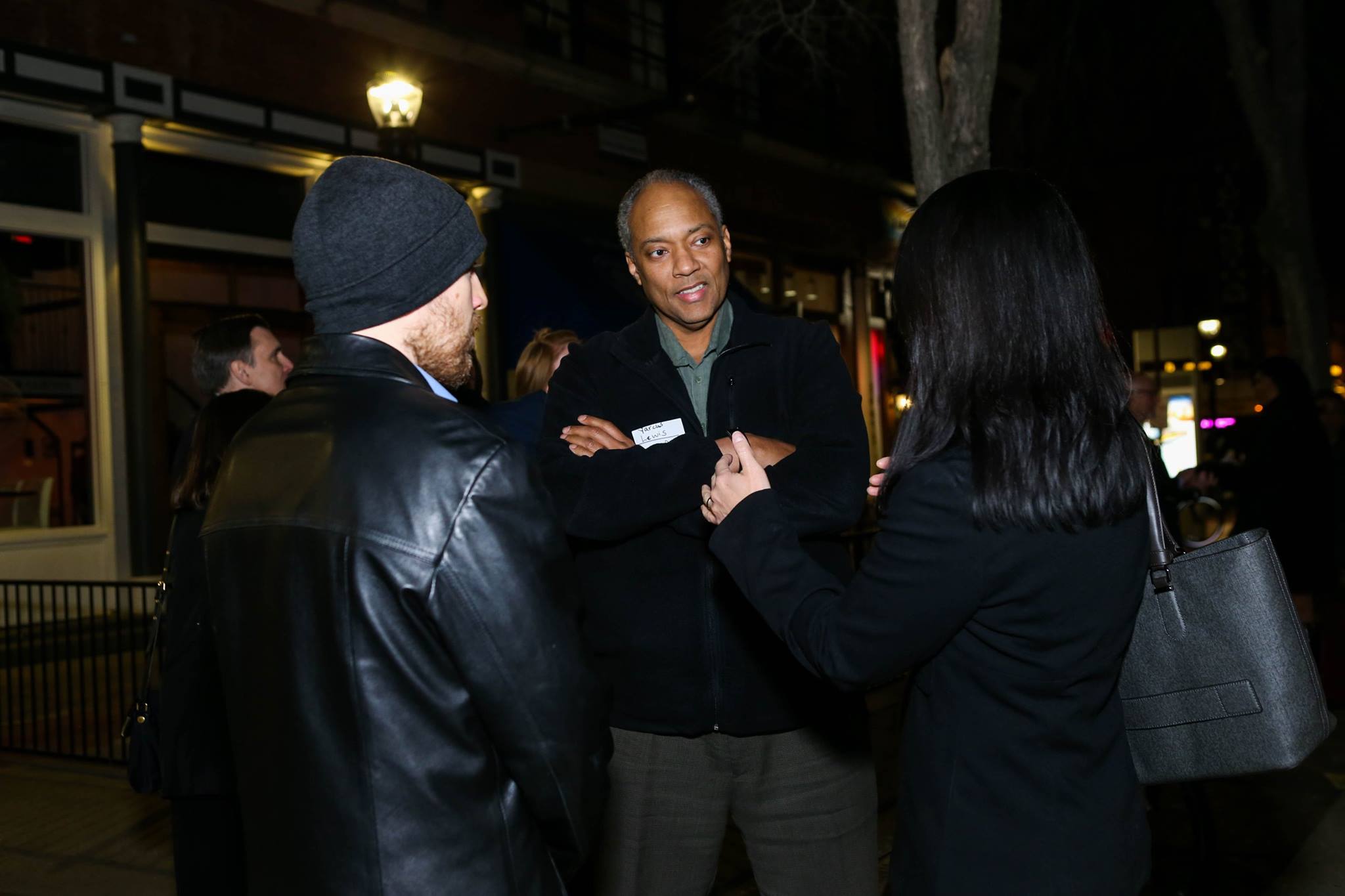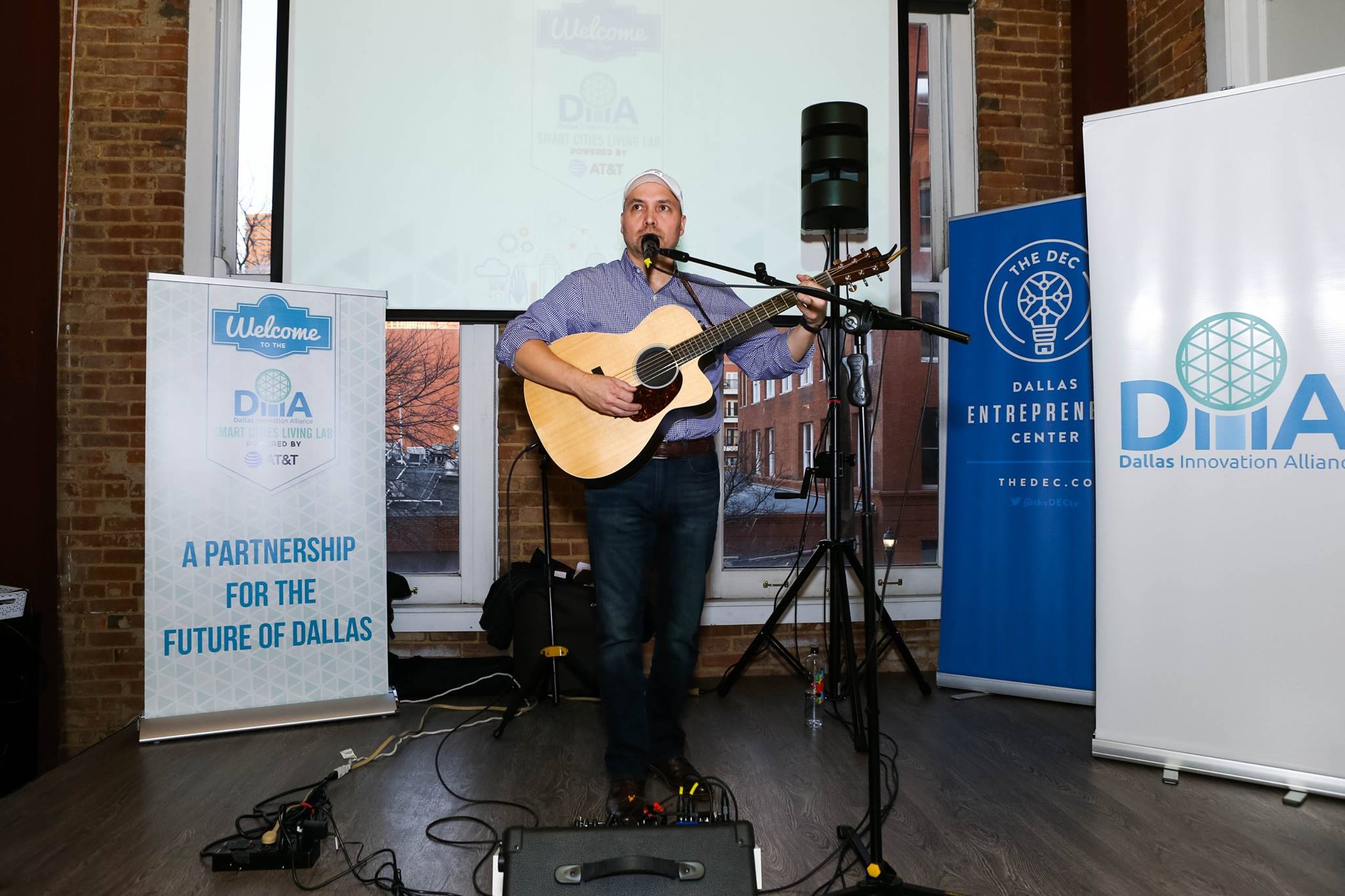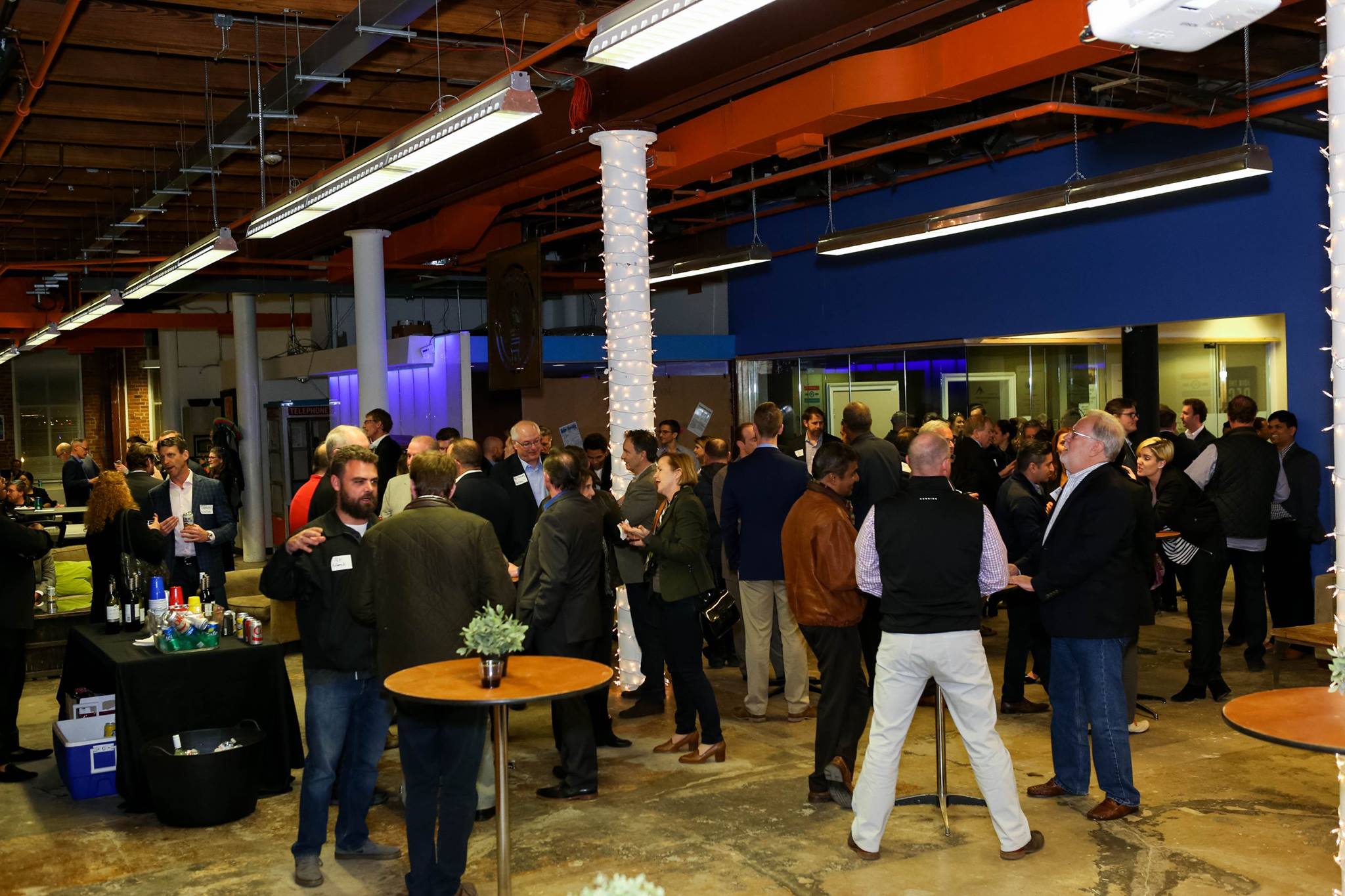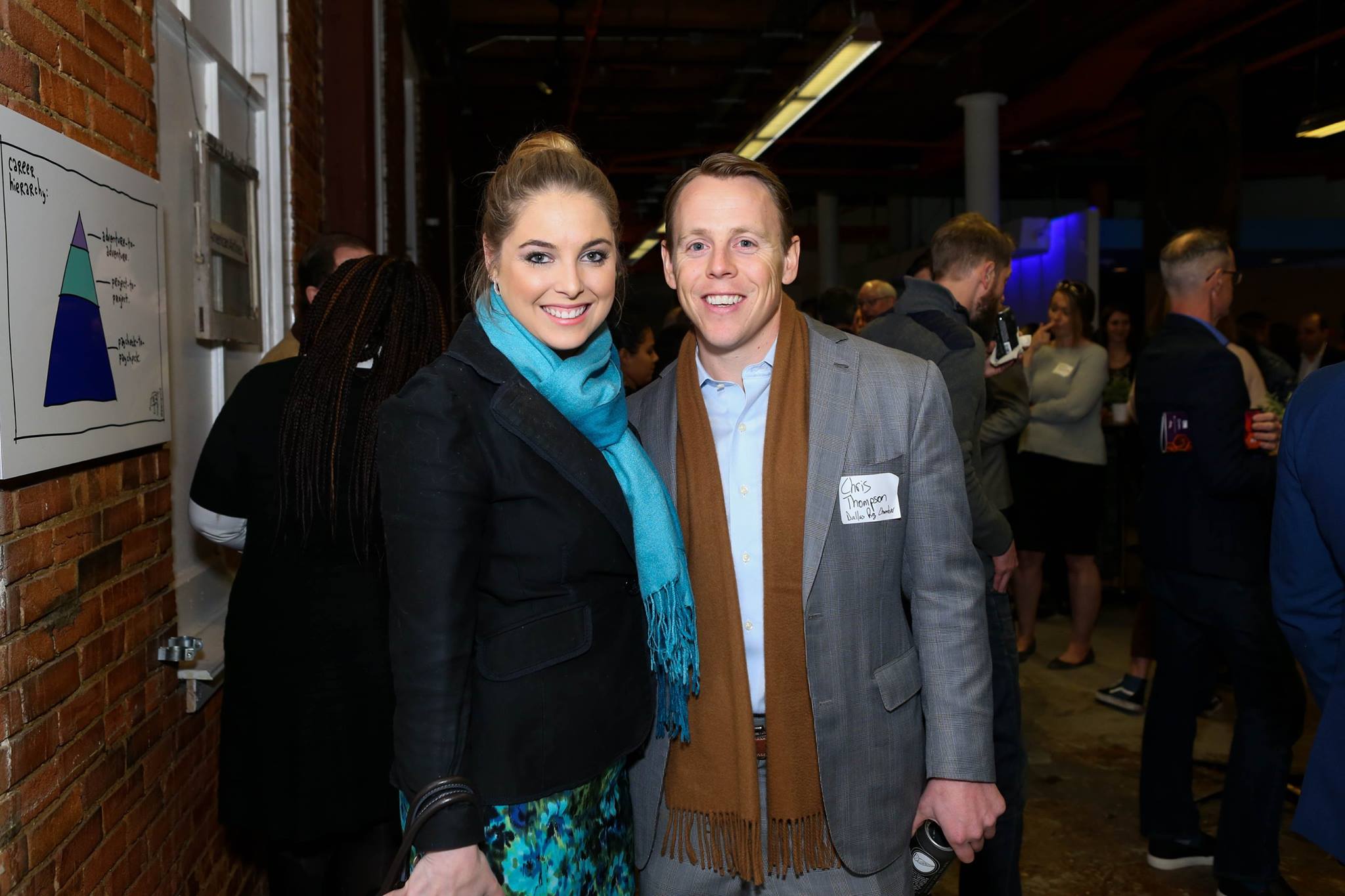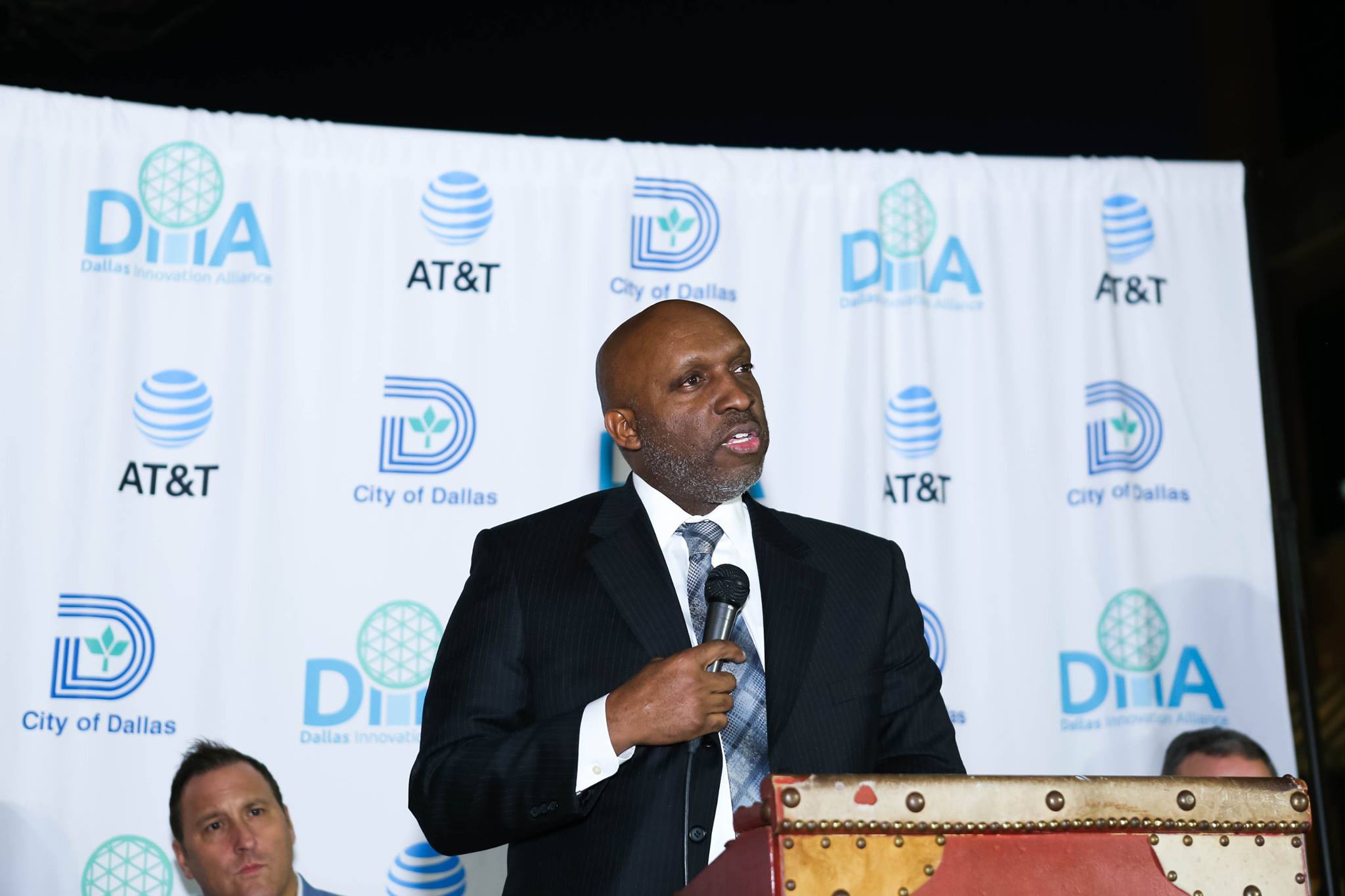“Dallas Alley Reimagined” Dynamic Lighting Installation to Activate Underpass in Downtown Dallas
Coalition Unites to Reanimate Arches Providing the Gateway Between Highway-Divided Neighborhoods
June 19, 2019 [DALLAS, TX] – Today, the Dallas Innovation Alliance (DIA), a 501c(3) public-private partnership dedicated to supporting the design and execution of a smart cities strategy in Dallas, announced the installation of dynamic LED lights on the series of archways connecting the West End and Victory Park in downtown Dallas.
This vision for transforming this underutilized space to enhance pedestrian activity, improve public safety, and create a visual destination through light and art became a reality through the generosity of a capital improvement grant from Downtown Dallas, Inc., and fulfilled via matching support from the American Airlines Center, Dallas Innovation Alliance, VisitDallas, West End Association and YO Ranch Steakhouse.
“This project is a culmination of the vision of many organizations to show how spaces can be reactivated in dynamic and innovative ways,” said Jennifer Sanders, Executive Director, Dallas Innovation Alliance. “Creating a safe and compelling pathway to connect seemingly disparate neighborhoods is a core component of creating smart cities that are designed with people in mind. We are thrilled to launch this installation bringing the Dallas Alley memories back to life in a modern way.”
As the lessee of the underpass space, the American Airlines Center’s collaboration with the City of Dallas and Dallas Innovation Alliance was instrumental in completing this project, which has been on the ‘wish list’ of organizations across the city for several years. The goal of this initial installation is to demonstrate the power and possibilities of reimagining underutilized or ‘dead space’ throughout the city – whether under highways, parking lots or empty storefronts – and lead to additional activity.
“DDI is thrilled to be a partner in this important project,” commented Kourtny Garrett, CEO, Downtown Dallas, Inc. “These iconic arches will become a Downtown point of interest as well as provide pedestrians a safer, more interesting walk to their destination. This project also addresses the goals and strategies found in the 360 Plan, Downtown’s strategic plan, in providing improved connections between Downtown neighborhoods, offering a vibrant, active passageway for pedestrians.”
“The new LED archways that connect the West End and Victory Park will illuminate the path between the two districts and American Airlines Center like never before,” commented Dave Brown, COO, American Airlines Center. “Not only will the arches provide an ever-changing art installation for the residents of Dallas, they also create a safe and easily identifiable path for our fans coming to and from the Center.”
A celebration and unveiling of the lighted arches will be held on Wednesday, June 26thfrom 6-9pm at the underpass. Join the community and project partners for refreshments, activities, entertainment and a reception at at Factory Six03. Rideshare drop-offs will be at 603 Munger Avenue, Dallas, TX 75202, and the underpass is two blocks from the West End DART station. Surface parking lots are also available surrounding the event.
“Dallas Alley is an iconic part of the West End’s history,” commented Chase Headley, President, West End Association. “The West End Association is thrilled to have a revived gateway to allow for residents and visitors to easily connect to Victory Park and the West End, whether its grabbing dinner before walking to an event at American Airlines Center, checking out the Dallas Innovation District or visiting one of our world class museums.”
“Light has a unique ability to connect communities and people in ways that contribute directly to the safety and livability of a city,” said Roger Karner, US Market President at Signify. “Dallas Alley Reimagined is a testament to the power of light to transform otherwise underutilized areas into visual destinations for residents and visitors alike.”
The 17 metal arches have been outfitted with a Color Kinetics lighting system from Signify, the world leader in lighting. These lights can be controlled and programmed to create spectacular light shows and stunning dynamic effects that engage and delight, and commemorate special events, holidays and important civic causes. Signify is responsible for illuminating some of the most iconic landmarks in the world, including the Bay Bridge in San Francisco, the Jacques Cartier Bridge in Montreal, the Allianz Arena in Munich, and the London Eye, to name a few. Design leaders from Essential Light provided programming expertise for the lighting activation; and ELS supported with engineering design and installation.
Visitors can expect visual light shows harkening back to the iconic Dallas Alley arches, cheering on the Dallas Mavericks and Stars, and celebrating the Fourth of July, among others designed to delight. Later this year, artists will be invited to enter their designs into a competition to be a featured art installation on the arches.
This project caps an exciting month for the organization, with its Innov8te Smart Cities Incubator cohort kicking off in the Dallas Entrepreneur Center – West End, with participating startups gaining valuable education, mentorship, programming and opportunities to grow their businesses. Startup City Hall will directly connect City of Dallas leadership and other public sector entities with startups to collaboratively solve city challenges. Partners in Innov8te include AT&T, Cisco, Microsoft and UT-Dallas. Learn more at: www.DallasInnovationAlliance.com/Innov8teand follow the journey on
Twitter at @Innov8te1.
The next phase for the Dallas Innovation Alliance will include projects in Southern Dallas focused on solutions to challenges around mobility, digital divide and public safety, among others. Phase II projects will begin in 2019.
About the Dallas Innovation Alliance
The Dallas Innovation Alliance (DIA) is a 501c3 public-private partnership dedicated to supporting the design and execution of a smart cities plan for the City of Dallas. The DIA defines a smart city as one that lives at the intersection of community, data and technology initiatives to accelerate economic growth, resource efficiency, and most importantly, improve quality of life. In 2017, the DIA launched the Smart Cities Living Lab, comprised of nine integrated projects in a corridor in downtown Dallas, and is the fastest-to-market smart cities initiative in the country. DIA support is led by Foundational Partners AT&T and Toyota Motor North America. Members of the Dallas Innovation Alliance include: City of Dallas, Dallas County, Dallas Area Rapid Transit (DART), Dallas Regional Chamber, VisitDallas, Dallas Entrepreneur Center (DEC), Downtown Dallas Inc., The Real Estate Council (TREC), Texas Research Alliance, AECOM, Cisco, CIVIQ Smartscapes, Current, EB Systems, Vericlave, Ericsson, IBM, Microsoft, ParkHub, Signify and Schneider Electric. For more information, please visit www.DallasInnovationAlliance.comor follow the DIA on Twitter: @DallasSmartCity.
About Downtown Dallas, Inc.
Downtown Dallas, Inc. is the primary advocate, champion, and steward for Downtown, effecting change by developing strategies, setting targets, and mobilizing resources that:
· Stimulate a vibrant and sustainable Downtown environment
· Improve infrastructure
· Enhance economic competitiveness
· Create a culturally inclusive urban center
· Position the area as a global destination
· Foster innovation and technology in all aspects of the urban experience
Program areas include: public safety; capital improvements; maintenance; economic development; public policy; planning/transportation; and marketing. For more information, visit www.downtowndallas.com
Contact:
Jennifer Sanders
Dallas Innovation Alliance
Jennifer.Sanders@DallasInnovationAlliance.com
972.472.1602
###
